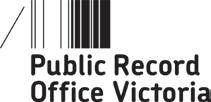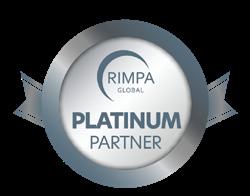
iQ ADVANCING AND CONNECTING THE RECORDS AND INFORMATION MANAGEMENT PROFESSION Transforming Your Workplace Culture The Australian Workplace Culture Shake-Up: Provocative Strategies to Secure Executive Buy-In for Transformation Allaying Suspicious Minds Global Information Consortium Announced at ARMA Canada Conference IN THIS ISSUE • Record-Keeping Deficiencies Exposed In Robodebt Royal Commission Report • Using Complexity Theory To Improve Records And Information Management • 5 Ways To Use ChatGPT To Advance Your Career THE RIMPA QUARTERLY MAGAZINE Capturing records and information management news since 1984 VOL 39 / ISSUE 3 / SEPT 2023 SPECIAL FEATURE:






INDUSTRY NEWS 2 | iQ September 2023 Process Automation Corporate Email Capture eForms Capture Digital Mailroom Backscanning Projects www.ezescan.com.au Call: 1300 EZESCAN (1300 393 722)
EDITOR: Jo Kane
Chief Operating Officer
Email: editor.iq@rimpa.com.au
Post: Editor, iQ Magazine
1/43 Township Drive
Burleigh Waters Qld 4220
GRAPHIC DESIGN: Amanda Hargreaves

Ole Creative - Graphic Design Agency
Web: www.olecreative.com.au
Email: amanda@olecreative.com.au
Stock images: Shutterstock

ADVERTISING
Tom Davies tom.davies@rimpa.com.au
EDITORIAL COMMITTEE
Stephanie Ciempka (ACT)
Jo Kane (NSW)
Matt O’Mara (NZ)
David Pryde (NZ)
Philip Taylor (QLD)
Roger Buhlert (VIC)
CONTRIBUTIONS & EDITORIAL ENQUIRIES
Articles, reports, reviews, news releases, Letters to the Editor, and content suggestions are welcomed by the Editor, whose contact details are above.
COPYRIGHT & REPRODUCTION OF MATERIAL

Copyright in articles contained in iQ is vested in their authors. Most editorial material which appears in iQ may be reproduced in other publications with permission gained through iQ’s Editor.

ANNUAL SUBSCRIPTIONS
AU $120.00 incl GST ($) per annum for 4 issues (excluding international postage), from: Subscriptions, Membership & Financial Services
RIMPA Global
Phone: 1800 242 611
International Phone: +61 7 32102171
To subscribe head to www.rimpa.com.au
iQ ONLINE ARCHIVE
Copies of articles published in iQ since 1984 are available at the Members Only section of the RIMPA website, in the iQ Article Archive. Complete back issues from February 2005 are available electronically at the Members Only section of the RIMPA website. The Members Only section of the website can be accessed with RIMPA membership.
DISCLAIMERS
Acceptance of contributions and advertisements including inserts does not imply endorsement by RIMPA or the publishers. Unless otherwise stated, views and opinions expressed in iQ are those of individual contributors, and are not the views or opinions of the Editor or RIMPA.
www.rimpa.com.au
iQ | 3 Official Journal of Records and Information Management Practitioners Alliance - Global VOLUME 39 / ISSUE 3 / SEPTEMBER 2023 iQ CONTENTS 22 44 RIMPA GLOBAL RIMPA QUARTERLY MAGAZINE 15 VIEW FROM THE CEO Anne Cornish Life MRIM CEO RIMPA 4 MEMBER UPDATE Member News 5 RIMPA And ARMA Membership 7 RIMPA NEWS Record-Keeping Deficiencies Exposed In Robodebt Royal Commission Report By Anne Cornish Life MRIM 8 RIMPA Live 2023: Convention Daily Program Sneak Peek 42 INDUSTRY NEWS Update From The Public Record Office (Prov) 9 OAIC Assessment Program Across 2022-23 9 From Paper To Pixels: Queensland State Archives' Digital Archive (QSA) 10 Social Media Records Are Still On The Agenda By Linda Zakman 13 Introducing The Global Information Consortium (GIC) 18 MANAGEMENT AND LEADERSHIP Why Leaders Need To Self-Reflect To Better Motivate Their People By Ella Zhang 14 More Heart, Less Head: Why People-Focused Leadership Is Needed Right Now By Leah Mether 16 SPECIAL FEATURE: TRANSFORMING YOUR WORKPLACE CULTURE Allaying Suspicious Minds By Craig Grimestad 22 Strategies For Obtaining Executive And Business Support: Transforming The Workplace Culture By Linda Shave FRIM 26 INFORMATION MANAGEMENT Using Complexity Theory To Improve Records And Information Management By Xander Hunter ARIM 30 ARTIFICIAL INTELLIGENCE 5 Ways To Use ChatGPT To Advance Your Career By Donna McGeorge 34 Some Challenges Of Living With AI By Dr Keith Darlington 38 INTERNATIONAL PERSPECTIVE The New EU Data Governance Act By Ibrahim Hasan 44 VENDOR NEWS It’s 2023: Do You Know Where Your Data Is? By George Tziahanas, VP Of Compliance Archive360 46 MEMBER PROFILE Mentor Magic: RIMPA Global Member Profile: Nicole Thorne-Vicatos 49 VENDOR DIRECTORY Vendor Directory 52
VIEW FROM THE CEO
The winter season has come to an end, concluding the financial year antics, and sees the RIMPA family proudly announcing their membership in the newly formed Global Information Consortium (GIC). With a growing community of 8,000 members, the consortium aims to achieve the following goals over the next two years:
• Serve as the global representative for the information management industry.
• Support the career advancement of information professionals.
• Establish a global community to support and advance the organisation's work.
While these goals may sound generic or cliché, the consortium has specific and exciting plans behind them. Imagine if information management was considered a recognised profession, similar to lawyers, accountants, and doctors. Envision a global calculator that accurately determines the value of information assets for each organisation. Picture a standardised language and set of definitions for information management worldwide.
These ambitions drive the consortium, which is a collaborative group with ARMA International and various industry bodies across the globe to advocate with a bigger voice. The RIMPA Board has prioritised the consortium in recent months, while the staff has diligently worked on organising an unforgettable conference, RIMPA Live on the Gold Coast, scheduled for October. The program features a diverse range of inspiring, thoughtprovoking, and knowledgeable speakers who will address both the technical and soft skill aspects of our roles.
The conference promises a wealth of content, collaboration, and learning opportunities. This year will see a focus on data as we work with our DAMA partners to enable RIMPA members to become more in tune with this trending activity. This partnership offers a comprehensive program that will assist our members in acquiring new skills and expanding their knowledge.
In addition, RIMPA recently acquired its first product, the Australian Records Retention Manual (ARRM). This tool is designed for records and information professionals in the private sector, emphasising the significance of effective records management for non-government organisations of all sizes. RIMPA plans to leverage this tool to broaden its coverage in the private sector and educate more records managers.
As the year draws to a close, RIMPA aims to enhance member benefits based on feedback from the recent member survey. Planned initiatives include:
• A hackathon to address pressing industry challenges.
• An audit tool kit for auditors and records managers in information management.
• Training and resources tailored to specific educational institutions.

• The development of an association’s retention and disposal schedule, RIMPA's second product.
• The introduction of eBooks.
We are excited to announce that we will be adding an additional information management subject matter expert to the RIMPA team, which will result in more tools and resources for various industries and experience levels. Members are encouraged to reach out to the expert and share any ideas they have for improving member benefits.
RIMPA looks forward to continuing to provide enhanced value and benefits to its members and wishes everyone a successful end to the year.
4 | iQ September 2023
VIEW FROM THE CEO
ANNE CORNISH LIFE MRIM CEO, RIMPA GLOBAL
RIMPA Live on the Gold Coast, scheduled for October. The program features a diverse range of inspiring, thought-provoking, and knowledgeable speakers who will address both the technical and soft skill aspects of our roles.
Renew Your Membership Today And Stay Connected With RIMPA
As we enter this exciting period, a warm greeting goes out to our valued members! For a large proportion of our community, it's that time of the year again –membership renewal time. We cherish the ongoing support and dedication of our members, and we want to ensure you have a seamless experience throughout this process.
Our dedicated membership team is already hard at work, reaching out to those who haven't renewed their memberships. If you're among them, don't worry! We encourage you to get in touch with us regarding any queries or concerns you may have. We are here to assist and make sure you continue to enjoy the benefits of being part of the RIMPA family.
To our members who are expecting their renewal, if you haven't received it yet, please reach out to us. We want to ensure you can continue to access the vast array of resources, networking opportunities, and exclusive events that come with being a part of our vibrant community.
At RIMPA, we firmly believe that our members are at the core of our success. Your active involvement and dedication to advancing records and information management have contributed immensely to our growth and achievements.
We're committed to providing you with the best possible experience and resources to excel in your professional journey.
Renewing your membership not only keeps you connected with the latest industry insights but also allows you to maintain valuable connections within the RIMPA network. The knowledge-sharing, collaboration, and support within our community play a significant role in driving innovation and excellence in the field.

Remember, our membership team is ready to assist you every step of the way. Whether you have questions about your membership, need assistance with the renewal process, or wish to inquire about the exclusive benefits available to our members, we are just a message or call away.
To get in touch with our membership team or for any membership-related queries, please contact admin@rimpa.com.au Thank you for your continued support, and we look forward to having you as part of our growing RIMPA community. We welcome all our new members!
iQ | 5 MEMBER UPDATE MEMBERSHIP NEWS
RIMPA GLOBAL
Your active involvement and dedication to advancing records and information management have contributed immensely to our growth and achievements.
Introducing... Otto!

Thank you to Ursula Stablum, for creating my new name 'Otto' which symbolises my innovation, growth, and the spirit of adventure that is RIMPA Global!"








Growing from strength to strength

This graph shows the exciting growth in membership numbers over the past four years. Starting from July 2019 with 1844 members, the figures steadily climbed to 1946 in May 2020, demonstrating a promising trend.
In July 2023, the membership numbers skyrocketed to a remarkable 3246, indicating a tremendous leap in three years. This phenomenal growth is a testament to the thriving community and increasing popularity of our organisation. We are thrilled to witness such fantastic progress and extend our heartfelt gratitude to all our valued members for their continuous support.
Visit our website to view the benefits of being a RIMPA Global Member and join this unique community. As we come to the second half of the year, we are excited to continue this exhilarating journey together as we strive to achieve even greater heights in the future!

For more information on becoming a RIMPA Global member, visit rimpa.com.au.
For enquiries, or to learn more about your membership please email membership@rimpa.com.au

6 | iQ September 2023
1,000 2,000 3,000 2019 2020 2021 2022 2023 Membership Numbers Years OTTO
Membership Growth
"I've had a makeover!
RIMPA GLOBAL MEMBERSHIP NEWS
Arm yourself with double the benefits and enhance your career further when you add an ARMA International membership to your existing RIMPA membership.
Drive your career and gain access to more information and resources outside of Australia and New Zealand. Apart from the amazing list of benefits you receive from RIMPA, for a small additional fee, you will also receive:
• Weekly Updates with timely and relevant resources
• Special discounts on training and certificate programs, events and programs
• Online and Chapter Community, Industry Groups, and Mentorship programs
• Complimentary Webinars from Industry Experts
• 24/7 Access to a library of publications
• Job-seeker access to the career center

WHO IS ARMA INTERNATIONAL?
ARMA International is the community of records management, information management, and information governance professionals who harness the benefits and reduce the risks of information.
ARMA International supports member's professional and career advancement with forward-thinking education, continued meaningful networking, and cutting-edge business tools - everything members need to successfully navigate the full information cycle.
Email: admin@rimpa.com.au
NEXT EDITION: DECEMBER 2023
Progressing
• Continuous Professional Development
• Networking and Industry Engagement
• Embrace Data Privacy and Security
Future
• Demonstrate Problem-Solving Skills
• Communication and Leadership
Focusing on these key points will help information and data managers advance their careers and secure a promising future in an increasingly data-driven world.

INDUSTRY NEWS iQ | 7
to contribute to iQ?
to iQ’s
Visit rimpa.com.au/news/iq/iq-article-submission Submit your story to: editor.iq@rimpa.com.au COPY DUE: 6 OCTOBER 2023
informed
Want
Refer
submission guidelines.
In this edition we unveil strategies for information and data career growth. Master data privacy, problem-solving, and leadership. Stay
with expert insights, success stories, and practical tips to shape a prosperous future in information and data management. Don't miss your path to success!
your
your
Career and Emerging Practitioners: Strategies and Methods to Secure
RIMPA
AND ARMA INTERNATIONAL MEMBERSHIP
Contact the Membership Team to ARM yourself with additional benefits.
RIMPA GLOBAL PARTNERING FOR THE PROFESSION
RIMPA Company Outstanding Achievement Awards
The 2023 Company Outstanding Achievement Awards (COA) are now closed, and our Company Awards Committee are busy assessing each nomination.
Shortlisted nominees for both the 2022 and 2023 COAs will be invited to attend the RIMPA Live: Black Tie Gala Dinner being held on Wednesday 4 October 2023, where the winners of each COA Award will be announced. The 2022 award recipients to be announced are:
• iQ Article of the Year
• Jim Shepherd Vendor of the Year
• Julie Apps New Practitioner
• Tom Lovett Outstanding Student
• Pamela Hall Outstanding Group
• J Eddis Linton Outstanding Individual
The 2023 award recipients to be announced are:
• iQ Article of the Year
• Jim Shepherd Vendor of the Year
• Julie Apps New Practitioner
• Tom Lovett Outstanding Student –sponsored by Records Solutions
• Pamela Hall Outstanding Group – sponsored by Information Proficiency
• David Moldrich Outstanding Volunteer
• J Eddis Linton Outstanding Individual – sponsored by EzeScan
Good luck to all our nominees and we look forward to our 2022 and 2023 winners receiving this great recognition of their achievements on the 4 October 2023.

Record-Keeping Deficiencies Exposed in Robodebt Royal Commission Report
BY ANNE CORNISH, CEO RIMPA GLOBAL
The recently published findings of the Royal Commission into the Robodebt Scheme have brought to light critical record-keeping failures as a major contributing factor to the program's eventual downfall.
The Robodebt Scheme, initially proposed by the Department of Human Services (DHS) as a budget measure in 2015, aimed to recover alleged welfare overpayments from recipients dating back to the 201011 financial year. It heavily relied on the controversial method of "income averaging" to assess income and benefit entitlement, but unfortunately, this approach yielded inaccurate results and failed to comply with the income calculation provisions of the Social Security Act 1991 (Cth).
Despite facing intense public criticism since 2016, the scheme continued until November 2019, when it was finally announced that debts would no longer be raised solely based on income averaging. In 2020, a class action settlement was reached, resulting in the reduction of all debts raised through averaging to zero. Additionally, then Prime Minister, the Hon Scott Morrison MP, issued an official apology for the scheme in June 2020.

The Royal Commission, established through Letters Patent on August 18, 2022, under the Royal Commissions Act 1902 (Cth), was tasked with investigating various aspects of the Robodebt Scheme. These included the establishment, design, and implementation of the scheme, how risks and concerns
were addressed, the management of complaints and challenges by the government, the involvement of third-party debt collectors, and the overall human and economic impacts of the program.
The comprehensive report, spanning nearly 1000 pages, extensively references record-keeping issues encountered throughout the implementation of Robodebt. Former Secretary of the Department of Defence, Renee Leon, testified during the inquiry, highlighting instances where ministerial expectations discouraged clear written briefs on sensitive matters. The report emphasises the importance of maintaining transparent and comprehensive records within the Australian Public Service.
Chapter 23 of the report, titled "Improving the Australian Public Service," specifically delves into Section 7, focusing on the record-keeping failures of Robodebt, offering detailed insights into the shortcomings observed.
As the findings become widely known, it is expected that lessons from the Robodebt Scheme's record-keeping failures will serve as a valuable guide for better governance and transparency in future government initiatives.
The full report of the Royal Commission into the Robodebt Scheme Report is available for public access and scrutiny.
8 | iQ September 2023 RIMPA NEWS
Australian Government Office of the Australian Information Commissioner (OAIC) Assessment Program (2022 - 2023)
In the 2022-23 financial year, the OAIC’s assessment program focused on key areas affecting the personal information of many individuals. These areas included data matching, digital identity, digital health and the Consumer Data Right (CDR).
Copies of our Privacy Assessment Reports and CDR Assessment Reports are available on the OAIC website.

We found that during 2022-23 most of the entities assessed generally complied with their privacy obligations but could take further steps to strengthen their privacy posture. The key takeaways from our assessments in 2022-23 were that entities should do the following:
• Regularly review practices, procedures and other resources (such as templates) to ensure they are current, complete, and clearly outline measures used to manage privacy risks.
• Implement annual and mandatory refresher training for all staff (including contractors and short-term staff). This is an important part of engaging staff to implement privacy programs in practice.
• Regularly review and test data breach response plans to ensure that plans are current and staff know how to efficiently respond to a data breach. This includes conducting post-breach assessments of data breach responses.
• Review policies and practices around the retention of information, including examining what information is being retained and for how long, and considering the rationale for any retention periods set.
• Actively implement recommendations made in reviews, audits and assessments and similar – whether they result from an OAIC assessment, a Privacy Impact Assessment, or another form of internal or external audit or review.
• Proactively maintain and monitor audit logs to identify and manage risks such as unauthorised access and disclosures of personal information.
• The OAIC has published the following guidelines which will assist you in understanding your entities privacy obligations:
- Australian Privacy Principles Guidelines

- The CDR Privacy Safeguard Guidelines
- Data Breach Preparation and Response Guide
- Privacy Management Framework.
Update from
RECORDKEEPING REPORTING
Earlier this year PROV released our analysis of reports of Victorian integrity and oversight agencies between 2010 and 2020. We found that recordkeeping was a significant concern of the integrity system with more than half the reports identifying recordkeeping issues and making recommendations for improvement. The most common areas of concern were found to be poor processes and systems, creation and capture of records, and quality of information captured. You can find the report, Recordkeeping issues across government 2010-2020, on our website.
ONLINE LEARNING
All public servants have a responsibility to keep complete and accurate records, and so we have been pleased to launch our second e-learning training course. The Digital recordkeeping e-learning module looks at responsibilities in relation to keeping digital records, why we need to keep these records, and how to do so lawfully and in accordance with PROV standards. This and our original Recordkeeping essentials course can be found on our website.
NEW STRATEGIC MANAGEMENT STANDARD AND GUIDELINE
In other news, we released the new PROS 23/01 Strategic Management Standard and associated guideline replacing PROS 19/03. The new Strategic Management Standard is comprised of the following areas:
• Valuing records
• Establishment, governance and accountability
• Strategic planning
• Policy
• Digital transition
• Assessment and measurement
• Transferring functions between and outside Victorian public offices
Thank you to those involved in the Stakeholder Advisory Group and other interested parties for providing feedback on the new Standard and Guideline. Visit prov.vic.gov.au for more information.
INDUSTRY NEWS iQ | 9
From Paper to Pixels:
QSA is the lead agency responsible for managing and preserving the historical public records of Queensland. The collection held at QSA spans over 200 years and includes government documents, photographs, maps, and audio-visual materials that provide valuable insights into Queensland's past.
While physical records have played a vital role in documenting the State's history, the advent of digitalborn records introduces a different set of challenges. Therefore, digital preservation will become increasingly essential to the long-term accessibility and authenticity of digital records.
In the 21st century's digital landscape, the majority of newly created information will exist solely in digital form, with no analogue or paper equivalent. These digital artifacts will shape our future history and heritage, serving as ongoing evidence to document and safeguard citizens' rights while providing a foundation for organisational decisions and accountability. They will also preserve the achievements of our State.
However, the privilege of identifying, preserving, securing, and providing access to these culturally and historically significant born-digital records comes with considerable responsibilities and challenges.
Unlike physical objects, managing digital objects requires intervention throughout their lifecycle, necessitating early-stage involvement. Digital information is encoded in a manner unreadable to humans, consisting of binary code – zeros and ones.
The content encoded in binary form is meaningless without software to translate it into humanreadable form and knowledge of the file format used for encoding.

Furthermore, digital records are inherently fragile and susceptible to various risks, such as media and format obsolescence, corruption and degradation which hinder their long-term usability and accessibility.
With advancing technology, the interdependencies between various elements becomes more complex and demanding to maintain,

INDUSTRY NEWS 10 | iQ September 2023
... digital records are inherently fragile and susceptible to various risks, such as media and format obsolescence, corruption and degradation which hinder their longterm usability and accessibility.
As technology changes and advances, how records are created is also changing. Queensland State Archives (QSA) recognises this shift and is adapting to ensure the preservation of records in their original digital format, safeguarding the culturally and historically significant digital records of the State for future generations.
Queensland State Archives' Digital Archive
making digital preservation an ever-evolving challenge. As digital information becomes more intricate and interconnected, preserving context and maintaining relationships becomes paramount.
The meaning of digital information often relies on additional information (metadata) that might have been implicit within its original context. Identifying, understanding, and capturing relevant metadata is essential for successful digital preservation efforts, especially in the context of access and re-use. Accurate, reliable and machine-readable metadata is crucial for demands in AI, machine learning, and advanced analytics.
Therefore, having a trusted digital preservation program and repositories, along with established standards, is vital for managing the risks associated with preserving digital materials over time.
The year 2017 marked a significant milestone for QSA’s digital preservation journey, when funding for a Digital Archiving Program was secured. After a rigorous evaluation and shortlisting process, a successful consortium led by Gaia Resources
was selected and Tranche 1 of the Program was completed in June 2020.
Tranche 1 successfully delivered a new Archival Management and Control system to support the management of Queensland’s archival public records with modern access, search and discoverability capability.
In June 2021, funding was approved for Tranche 2, which focused on the implementation of a Digital Preservation System (DPS) using Archivematica. The DPS implementation leveraged the outputs of a proof of concept conducted from October 2020 to April 2021, ensuring effective digital preservation and storage capabilities.
Throughout the project, QSA has collaborated with national and international experts in recordkeeping to deliver a robust and comprehensive digital archive program. This partnership ensures the accessibility, preservation, and efficiency of Queensland's digital records.
When the Digital Archive became operational in July 2023, it marked a momentous occasion for the people of Queensland.

INDUSTRY NEWS iQ | 11
Identifying, understanding, and capturing relevant metadata is essential for successful digital preservation efforts, especially in the context of access and re-use. Accurate, reliable and machine-readable metadata is crucial for demands in AI, machine learning, and advanced analytics.
QSA Digital Archive Team
The program provides a sustainable digital management and archival system capable of preserving Queensland Government records of enduring value. It fulfills QSA's aspirations to safeguard and manage the digital heritage of our communities. The Digital Archive's functionality ensures that digital objects within the QSA digital collection are managed in a way that preserves their context, integrity, authenticity, and survives technological changes.
The primary goal of digital preservation is to increase access and use. Preservation efforts ensure that the State's digital heritage remains accessible, interpretable, and usable by present and future generations.
Ultimately, the Digital Archive will offer faster online access, improved management capabilities, enhanced security, and easier record requests.
In its initial stages, the Digital Archive Program will prioritise ingesting digital materials already in its custody. This includes extracting digital records from legacy media like floppy disks, CDs, and hard drives.
Over the coming months, the program plans to ingest more than 5,000 digital objects from over 100 physical devices, totalling approximately 2.6 million MB and encompassing various formats such as JPGs, Office docs, TIFFs, CAD files, MP3s, WAVs, PNGs, MKVs, and MXFs.
Additionally, digital records related to First Nations communities and peoples are being prioritised for preservation to support the work of other government entities and First Nations communities in realising the Path to Treaty.
The Digital Archive Program also focuses on preserving at-risk audiovisual records, with progressive digitisation planned over four years to ensure accessibility for present and future Queenslanders.

The next phase will concentrate on building a fully functional Digital Archive, enabling government agencies to transfer their digital records. The focal point will be co-designing a service that enhances efficiencies across government agencies.
As the Queensland State Archives embarks on this ambitious digital preservation journey, it eagerly embraces the forthcoming challenges, turning obstacles into opportunities and safeguarding the future, one byte at a time.
INDUSTRY NEWS 12 | iQ September 2023
QSA Digital Archive team member Amy using FRED (Forensic Recovery of Evidence Device)
The primary goal of digital preservation is to increase access and use. Preservation efforts ensure that the State's digital heritage remains accessible, interpretable, and usable by present and future generations.
Social Media Records Are Still On The Agenda
BY LINDA ZAKMAN
The instability of proprietary social media platforms creates a variety of risks. Users have little or no control over what can happen to platforms, or accounts and data being suspended, lost, taken down or hacked.
ROLE OF INFORMATION MANAGEMENT PROFESSIONALS
As information governance professionals, it’s our job to assess current risks and opportunities. This relies on being well connected in your organisation, communicating regularly with both your IT and cyber security experts, and your legal and corporate governance teams.
RISKS TO SOCIAL MEDIA RECORDS
Recently, a popular social media platform demonstrated its volatility by cutting off selected third-party app access to its APIs without warning. To the average user the loss of access to features such as APIs to enable business and connectivity may seem insignificant. However, to an organisation it can greatly impact productivity and business continuity.
In the Federal Government, we are mindful of the risks around not managing social media records in a timely manner. Here today, possibly gone the next, official government records on third party platforms need immediate attention.
NEW SOCIAL MEDIA ADVICE
The National Archives of Australia recently updated advice to help agencies meet the challenges of managing records of social media and instant messaging:

• Managing social media and instant messaging (IM)
• Your social media policy – what about records?
Our key messages don’t insist on elaborate strategies or capture technology. Instead, it is about making risk-based decisions and doing something to keep up with the rapid churn of posts. An organisation’s social media policy is a good place to start to unpack risk and assign responsibilities. A social media policy created collaboratively by different areas in your organisation, not limited to information management, can be a powerful decision-making tool.
Your policy can define workflows to meet all kinds of risks, including those related to staff conduct, privacy, cybersecurity and intellectual property. Remember to reach out to your community of practice like the RIMPA Open Forum, to compare or share what social media practices you have or would like to implement.
WEIGH UP RISKS WITH THE BENEFITS
We should not forget the benefits that social media brings to our organisations and community. It provides opportunities for citizens and organisations to communicate in real time, enabling a democratic society. Engaging with citizens via social media has seen Government agencies such as the Australian Electoral Commission “win friends and influence people”.
From an archival perspective, social media records enrich an archival collection. They give researchers and citizens a powerful understanding of population sentiments about the business of government during a specific period of time.
Achieving good outcomes using social media while getting your social media governance in order is a win-win for all stakeholders.
INDUSTRY NEWS iQ | 13
To the average user the loss of access to features such as APIs to enable business and connectivity may seem insignificant. However, to an organisation it can greatly impact on productivity and business continuity.
Social media has made its permanent mark on our personal and business lives. We now accept social media as government records, but the information governance issues around managing them remains a challenge.
Why leaders need to self-reflect to better motivate their people
BY ELLA ZHANG
By delving deep into your being, you not only build a profound connection with yourself but also unlock self-awareness, reveal core values, sharpen emotional intelligence, clarify purpose, develop a resonating leadership style, and become a source of inspiration and motivation for those around you.
WHY CULTIVATE SELF-INTIMACY?
Cultivating self-intimacy is a process of understanding your inner world, including your unique character, values, thought patterns, emotions, strengths, weaknesses, motivations, and purpose. It lays the foundation for effective leadership, allowing you to lead authentically, confidently, and purposefully. Self-intimacy enhances several leadership capabilities, such as:
• Self-awareness

Understanding your strengths, weaknesses, values, and triggers is the cornerstone of effective leadership. It enables informed decisions, authentic communication, emotional management, and awareness of how your actions impact others.
• Authenticity
In a business landscape hungry for genuine leadership, self-intimacy empowers leaders to embrace their true selves, radiating a captivating presence. Authenticity fosters trust and creates an environment conducive to innovation and collaboration.
• Building trust via Vulnerability and Connection
Self-intimacy helps leaders to clarify their purpose and values, creating consistency between intentions, actions and decisions, which inspires trust and motivates others to work toward common goals. When leaders are open about challenges and setbacks and use them to grow and evolve, they create an environment where others feel safe to share their struggles. Bonding on this level sparks trust and a sense of commitment, motivating others to go above and beyond to achieve collective goals.
• Purpose-driven leadership
A deep understanding of your values, purpose, and priorities cultivates an unwavering dedication that inspires others to connect their work to a higher mission, which fuels enthusiasm, drives performance, and nurtures a culture of success. It won't surprise you that self-intimate leaders also have higher emotional intelligence. They are aware of their own emotions and how emotions influence their thoughts and actions, which enables them to empathise and connect deeply with others, navigate challenging situations, resolve conflicts, and create a positive work environment.
HOW TO DO IT?
Cultivating self-intimacy involves nurturing a strong connection with one's thoughts, emotions, values, and aspirations. Here are the four types of self-intimacy leaders should focus on:
• Mental Self-Intimacy
Mental self-intimacy is about gaining clarity by understanding your thoughts, beliefs, and cognitive patterns, so you can check biases, think critically, make mindful decisions, and adapt to new challenges.
To cultivate mental self-intimacy, you can capture and challenge your thoughts to think more flexibly. You can expand your mind by purposefully designing your environment to break away from old, unhelpful comforts; and safeguard your attention to be a productive thinker, hence an effective leader who can allocate your attention to what matters.
• Spiritual Self-Intimacy
Spiritual self-intimacy involves connecting with a higher purpose or meaning beyond material success so that leaders can align their actions and decisions with their core values to form a greater sense of purpose. Such alignment fosters a sense of fulfilment, authenticity, and resilience, providing a deeper motivation to lead with integrity.
14 | iQ September 2023 MANAGEMENT & LEADERSHIP
Inspiring and motivating others is crucial for leaders, requiring understanding, empathy, and deep connection. While there are various strategies for achieving this, one often overlooked approach is self-intimacy.
To cultivate spiritual self-intimacy, you can deepen the connection with your inner self by harnessing the power of silence and solitude, managing your ego, reflecting to connect the dots between your core values, character, decisions and life experiences, see the big picture and the role you are playing in it.

• Emotional Self-Intimacy
Emotional self-intimacy allows leaders to stay composed under pressure, empathise with their team members, recognise their needs, and provide support. You can cultivate emotional intimacy by paying attention to your emotions, identifying them without judgment, and understanding the triggers and patterns behind your emotional responses. You can also practise self-compassion by embracing self-care practices that nourish your emotional well-being, finding healthy outlets for expressing your emotions, such as journaling, venting with your qualified advisors, or engaging in creative activities to regulate and manage challenging emotions effectively.
• Physical Self-Intimacy
Maintaining physical well-being is essential for leaders to sustain their energy, focus, and resilience. It enables leaders to prioritise self-care, work with instead of against their body, listen to their body's needs, and provide it with the nourishment and rest it requires.
To cultivate physical self-intimacy, you can engage in body-awareness practices, such as yoga, tai chi, or mindfulness-based movement, tune into the sensations, tensions, and messages your body communicates. You can also engage in activities that stimulate your senses and bring you joy, such as appreciate the beauty of nature, or expose yourself to heat or cold to engage your senses.
Leadership is not solely about leading others; it begins with leading oneself. Cultivating self-intimacy is not only a personal imperative but also a strategic advantage.
You lay the foundation for genuine connections, trust, and collaboration with your people by nurturing selfintimacy on mental, emotional, spiritual, and physical levels. By nurturing your relationship with yourself, you will become a beacon of inspiration and motivation, positively impacting the lives of those around you and fostering a thriving and empowered team to reach their fullest potential and create a culture of excellence and fulfilment.
ABOUT THE AUTHOR
Ella Zhang, author of 'Upgrade: How To Outperform Your Default Self To Gain Your Superpowers', is a strategic change maker, organisational development specialist and coach, who helps business leaders to tap into their inner wisdom to design and fine tune people strategies, form up individual and organisational habits to create value and purpose driven workplaces. For more information visit www. EllaZhang.com.au

iQ | 15 MANAGEMENT & LEADERSHIP
Cultivating self-intimacy is a process of understanding your inner world, including your unique character, values, thought patterns, emotions, strengths, weaknesses, motivations, and purpose.
More Heart, Less Head: Why People-Focused Leadership Is Needed Right Now
 BY LEAH METHER
BY LEAH METHER
In these challenging times, the need for people-focussed leadership has never been more important. To steer our teams through the storm successfully, we need to tap into our people skills and lead with more heart and less head.
The recent Gallup State of the Global Workplace 2023 Report, paints a concerning picture. It shows 59% of the employees worldwide are disengaged. They’re “quiet quitting”, showing minimal productivity and effort, and feeling disconnected from their work. In Australia, the numbers are even higher, with 67% of employees feeling disengaged. The report also highlights that employee stress levels remain at record highs, with 44% reporting having experienced significant stress on a daily basis. It’s no surprise then that more than half of currently employed workers (51%) are actively seeking new job opportunities. Interestingly, when asked about the one change they would make to improve their workplace during this challenging time, 41% of respondents said they would improve engagement or culture. This was higher than pay and benefits at 28% and employee wellbeing at 16%.
16 | iQ September 2023 MANAGEMENT & LEADERSHIP
In the fast-paced and uncertain world of 2023, change seems to be accelerating on a global scale. Industries are transitioning, corporations are undergoing restructures, and the aftermath of the COVID pandemic and natural disasters has left many grappling with a mix of big emotions and reactions.
It’s a clear indication that ensuring people feel valued and appreciated, celebrating successes, recognising contributions, and showing people you care are vital leadership qualities for fostering an engaged workforce when the going gets tough. As the saying goes, people don’t leave bad jobs, they leave bad bosses.

Leadership is about people. Management is about tasks. Leading through change and uncertainty goes beyond simply managing logistics, processes, KPIs and tasks. While this “head” stuff is important, it’s the “heart” – the humancentric aspect that needs the most attention, but it’s also the area many leaders tend to neglect. Why is the people bit so important? Because organisations don’t change, people do. We can have all the processes we like; we can mandate a new way of doing something, we can change the org chart to reflect a restructure, but true change and engagement will only occur when we get our people on board.
In times of stress, it’s easy to default to a management mindset. Systems and plans are practical, logical and give us a sense of control and comfort in the face of uncertainty.
Leadership requires courage. It’s messy because humans are messy and there’s no one-size-fits-all silver bullet approach.
Leadership during challenging times means dealing with people’s feelings because emotions underpin all human behaviour and drive our choices, decisions, performance and actions.
And this courage probably looks different in action to what you’d expect. It’s not about being bold, brash, commanding and demanding. Rather, it involves balancing warmth with strength, candour with compassion, and consistency with adaptability. It means facing the feelings head-on, being vulnerable, and sitting with the anger and frustration of your people while guiding them towards a better place. It’s creating a space where people can express, rather than supress, their emotions.
Leading with heart means showing your people that you genuinely care about them and their wellbeing, and making sure your words, tone, body language and actions all convey that. It means taking the time to check in and see how they’re travelling. It’s empathising with the challenges they face, asking meaningful questions and showing a sincere interest in their responses. Ultimately, it requires us to embrace our own humanity and genuinely connect with the humanity of those around us.
As Maya Angelou famously said, “People won’t remember what you say and do, but they will remember how you made them feel.” How we lead through challenge and change will often come to define what people think of our leadership. And when we finally emerge from the storm, what people will remember most is how we made them feel in the midst of it all.
We ignore them at our peril. People drive performance but if we don’t pay attention to how they feel during uncertain times, they’ll likely drive problems instead. Failing to address the fears and feelings of our teams can result in unproductive behaviour, conflicts, disagreements, distractions, increased stress leave, and even resignations. The cost of ignoring our employees’ emotions can be significant in terms of time, money and productivity.
Dealing with people, their emotions, challenges, behaviours and feelings is hard work. It requires courage, not confidence. Leading people through change takes courageous self-leadership, courageous communication and courageous behaviour.
So, let’s embrace the need for more heart in our leadership right now. Let’s prioritise engagement, culture, and the well-being of our teams. By leading with more of a people focus, we can create work environments where individuals feel valued, supported and motivated to give their best. Seeing the person first and the task second is not just the right thing to do, it gets us tangible results.
ABOUT THE AUTHOR
Leah Mether, author of Steer Through the Storm: How to Communicate and Lead Courageously Through Change (Ingram Spark, $25.00), is a communication specialist obsessed with making the people part of leadership and work life easier through the development of “soft skills”. Renowned for her engaging style as a trainer, speaker and facilitator, Leah helps leaders and teams shift from knowing to doing, and radically improve their effectiveness. Visit www.leahmether.com.au
iQ | 17 MANAGEMENT & LEADERSHIP
... facing the feelings head-on, being vulnerable, and sitting with the anger and frustration of your people while guiding them towards a better place.
Leadership requires courage. It’s messy because humans are messy and there’s no one-size-fits-all silver bullet approach.
As Maya Angelou famously said, “People won’t remember what you say and do, but they will remember how you made them feel.”
Welcome to the
Information
by
The mission of the GIC is to create a global community that supports the integration of information management into the corporate and government footprint. By joining forces with organisations that share the vision of the GIC, we work to positively transform the information management profession. By being part of the GIC, we aim to:
• strengthen networks
• raise awareness
• influence policy
• support career advancement
• foster collaboration
• promote best practices in information management. In this dynamic global community, we foster innovation and drive the profession to new heights. If you're interested in becoming part of this, please refer to the GIC application process detailed in the prospectus. Join us to help shape the future of information management with like-minded organisations globally. Let's make a lasting impact on the information management landscape.
VISION
Create a global community that will advocate for the effective and ethical management of information; a world where information management is embedded in the corporate and government footprint.
MISSION
Advocate for best practices in information management, leveraging collective expertise to raise awareness of the importance of information governance and to influence policy at the local, national, and international levels.
GOAL 1. BE THE GLOBAL VOICE OF THE INFORMATION MANAGEMENT PROFESSION
Strengthen Networks:

The consortium aims to enhance information governance, collaboration, and knowledge sharing through the establishment and strengthening of networks comprised of professionals and organisations. This is achieved by establishing partnerships with other organisations and professional associations to increase its reach and impact, hosting events or webinars to gather professionals from different sectors and regions, and building connections with other organisations that share similar values and can provide mutually beneficial opportunities. These efforts leverage the contributions of both staff and volunteers. Raise Awareness:
Raising awareness regarding the significance of information management and highlighting the risks of poor information governance among policymakers, decision-makers, and the general public, is instrumental in delivering better information governance. This could include comprehensive awareness campaigns, targeted messaging, and worldwide celebrations that recognise Information Management professionals. Establishing a global approach to education through these activities can help develop and promote successful Information Management professionals. An example of a communication pipeline to deal with current events could also be developed, allowing information governance stakeholders to improve their understanding of Information Management trends.
Influence Policy:
One of the crucial responsibilities of the GIC is to influence policy. In order to achieve this, advocacy for policies that promote effective information management, privacy protection, and fair access to information should be done. Collaboration with other advocacy organisations is also necessary to build a strong coalition for information management advocacy. Providing input and feedback on proposed legislation or policy changes related to information management should also be done. Lastly, finding opportunities for political outreach to promote the importance Information Management and its role in shaping policies and practices is crucial.
INDUSTRY NEWS 18 | iQ September 2023
Global
Consortium (GIC), an initiative co-founded
RIMPA Global and ARMA International. The consortium aims to unite likeminded organisations across the globe in advocating for the effective and ethical management of information.
GOAL 2. SUPPORT THE CAREER ADVANCEMENT OF INFORMATION PROFESSIONALS
Develop Research:
The development of research helps foster innovation in information management, leading to new technologies, methods, and tools that support effective information governance. Organisations can promote this development by providing grants or funding for research projects aimed at exploring emerging trends and challenges. Hosting conferences or symposia is another way to showcase new research and innovation in the field. Finally, publishing research reports on emerging trends and challenges in information management can help organisations to stay up-to-date on the latest developments.
Trends:
To keep up with the evolving demands, it's important for the consortium to stay current with emerging trends in information management and related fields. To achieve this, a comprehensive global survey should be launched to gauge the scope and diversity of the information management industry. Additionally, a resource library or database can be developed to track developments in areas closely related to information management, such as data privacy, cybersecurity, and AI ethics. Insights gained from trend monitoring can then be used to develop new resources and programs.
GOAL 3. ESTABLISH A GLOBAL COMMUNITY TO SUPPORT AND ADVANCE THE WORK OF THE ORGANISATION
Foster Collaboration:
Fostering collaboration is crucial to building a community of information management professionals worldwide. To achieve this goal, several strategies can be employed, such as creating an online forum or platform for experts to communicate and exchange knowledge. Networking events and forums can also connect professionals from different regions and sectors. Encouraging the sharing of success stories and case studies is essential to inspire innovation and best practices. Creating a sound framework for business partners to advance the field of information management and support industry thought leaders is also fundamental. Finally, assessing potential collaborations with external organisations and business partners based on specific needs and priorities is vital for the success of the GIC.
Promote Best Practices:
Best practices in information management should be encouraged across all sectors. The adoption of industry standards ensures quality and consistency. It is important to document and define industry certifications and programs to establish global certification. Standardising information management terms and language is also beneficial. Guidelines and standards for information management best practices should be developed and disseminated. Collaborating with industry associations and standards organisations is also highly recommended to promote the adoption of best practices.
WHAT ORGANISATIONS SHOULD JOIN?
The field of information management (IM) encompasses a wide range of sectors and disciplines dedicated to the ethical and efficient management of information. The Global Information Consortium (GIC) aims to provide a comprehensive view of information management by including the following sectors within its consortium. The specific sectors incorporated into the consortium may vary based
on the goals, industry focus, and the specific requirements of its members. However, it is crucial for the GIC to ensure a diverse organisational representation across these sectors to ensure a comprehensive coverage of the IM industry. Examples of Practices
• Records and Information Management
• Data Management and Analytics
• Archives
• Preservation Management
• Library Management
• Knowledge and Content Management
Information Governance and Compliance
• Digital Asset Management
Personal Information Management
BENEFITS OF MEMBERSHIP
Membership with the Global Information Consortium will unlock the full potential of your organisation in the information management profession. As a member, you gain access to a comprehensive array of exclusive benefits designed to empower your organisation and drive success. Here's a summary of the key benefits awaiting you:
• Access to a Global Community: All members will gain access to a global community of information management professionals and organisations. This will provide extensive opportunities for networking, collaboration, and knowledge sharing with like-minded individuals and entities from various sectors and regions.
• Global Influence on Policy and Standards: By being part of the consortium, members will have a platform to influence policy discussions and advocate for effective information management practices. Members will be able to contribute their expertise and insights to shape policies, guidelines, and industry standards related to records and information governance, privacy protection, and fair access to information.
• Global Influence on Education: As a member of the global consortium, you will have the opportunity to exert a significant influence on education related to information management on a global scale. By actively participating in the consortium's initiatives and collaborations, you can contribute to shaping the educational landscape and promoting best practices in information management worldwide.
• Global Collaboration and Partnership Opportunities: The consortium will facilitate collaboration and partnership opportunities amongst all members. This will include connecting members with potential business partners, industry thought leaders, and organisations that share similar values and objectives.
• Globally Amplified Advocacy: As a member of the consortium, you join a powerful collective voice that holds substantial influence on a global scale, working towards raising the profile of information management. Together, we engage in unified advocacy efforts to magnify our impact and strive to position information management as a highly sought-after career worldwide.
• Global Projects: The GIC aims to provide the infrastructure to co-ordinate collaborative projects and initiatives which will lead to mutually beneficial outcomes and advancements for the information management industry.
• Local Visibility and Recognition: Increased visibility
iQ | 19 INDUSTRY NEWS
GIC
within the GIC community can lead to enhanced credibility and reputation for your organisation, reinforcing its position as a trusted and influential player in the information management field.
• Global Celebrations: GIC members will have the opportunity to participate in global celebrations that are dedicated to promoting and raising awareness about the information management industry. These celebrations may include events such as Information Awareness Month, International Archives Week, and other globally recognised days, weeks, or months that highlight the importance of effective information governance and management.
• Representation and Engagement: By becoming a member of the consortium, you will have a direct and active role in shaping the decisions and initiatives of the GIC. This engagement is facilitated through membership levels associated with the Global Council, GIC committees, and working groups. As a member, you will have the opportunity to participate in meetings, forums, and discussion groups where your ideas, perspectives, and expertise are valued and can make a meaningful impact.
• Global Resources and Support: The consortium aims to provide members with access to valuable resources, such as research reports, whitepapers, toolkits, and best practice guidelines. These resources will assist members in addressing challenges and implementing effective information management strategies.
• Latest Global Industry Trends: GIC members will have exclusive access to global survey results to empower your members to make data-driven decisions, implement innovative approaches, and remain competitive in an ever-evolving information management environment. By becoming a member of the GIC, you can unlock unparalleled opportunities for growth, collaboration, and success in the information management profession. Join the GIC and harness the transformative power of the exclusive benefits to propel your organisation to new heights of excellence.
Membership Comparison
BENEFITS GLOBAL COUNCIL SUPPORTING MEMBER AFFILIATES

GIC Global Council Member
Drive the GIC Strategy and Work Plan
Voting Rights
Opportunity to Chair Working Groups
Opportunity to Chair Committees
Participate in Working Groups
Participate in Committees
Access to GIC Resources and Materials
MEMBERSHIP OPTIONS
Global Council Membership
Global council membership is for organisations with an established history of influence and dedication to providing resources and education in the information management profession. As a global council member, the organisation representative will have voting rights on matters brought to the council, participation in strategic planning and inclusion in all meetings of the governing body. Additionally, Global Council Members will be encouraged to chair or participate in working groups and committees.
Supporting Membership
Supporting members would consist of organisations that show a particular interest in specific goals and objectives but do not meet the criteria set forth for global council membership. This membership level is non-voting, with opportunities to attend all meetings of the governing body. Additionally, supporting members are encouraged to participate in working groups and committees.
Affiliates
The affiliates of the consortium primarily refer to regulatory bodies worldwide that are responsible for creating and implementing laws related to information management across all mediums.
Advisory Council
The consortium may establish an Advisory Council to provide expert advice on key issues and to support the development of policies and programs. The Advisory Council would be composed of respected professionals and leaders in the field of information management and advocacy.
APPLICATION AND EVALUATION PROCESS
Thank you for your interest in becoming a member of the Global Information Consortium. The GIC is dedicated to the advocacy for best practices in information management, leveraging collective expertise to raise awareness of the importance of information governance and to influence policy at the local, national, and international levels.
INDUSTRY NEWS 20 | iQ September 2023
GLOBAL INFORMATION CONSORTIUM
Membership Criteria and Fees
MEMBERSHIP ELIGIBILITY COMMITMENT CONTRIBUTION
• Established Not for Profit/For Profit Organisation.
• Membership exceeding 1000 members of the primary membership type.
• A governing Board of Directors.
Global Council
Supporting Member
• Annual budget sufficient to cover related expenses.
• Focused on one or more sectors under the Information Governance.
• Relevant expertise and experience
• Active participation
• Geographical diversity
• Gender and cultural diversity
• Demonstrated reach in a geographic region.
• Historical advocacy for the profession.
• Focused on one or more sectors under the information governance.
• Dedication of one board representative (voting member) and one professional staff member to act as the consortium representative.
• Representative attendance of monthly consortium meetings.
• Representative attendance of bi-annual in-person consortium meetings.
• Coverage of all necessary travel related cost of member organisation.
• Role as an active ambassador for the advocacy of the policies and programs of the consortium.
• Participation in additional activities as required, e.g. chair or participate in working groups.
• Dedication of one individual to act as the consortium representative.
• Representative attendance of monthly consortium meetings.
• Representative attendance of bi-annual in-person consortium meetings.
• Coverage of all travel related cost by member organisation.
• Participation in additional activities as required, e.g. participate in working groups.
• Committed to the mission, goals and principles of the GIC.
Affiliates
• Regulatory bodies worldwide that are responsible for creating and implementing laws related to information management across all mediums.
Advisory Council
To become a member, interested organisations must complete the following steps:
Application
$10,000 USD Annually
$2,500 USD Annually
• Committed to building ongoing relationships with the GIC and its members.
• Committed to developing the GIC for the good of the entire community.
• Committed to the mission, goals and principles of the GIC.
• Committed to building ongoing relationships with the GIC and its members.
• Committed to developing the GIC for the good of the entire community.
Applicants must complete an online application form, which includes information about the organisation's mission, vision, and objectives, as well as a description of how the organisation aligns with the goals and values of the Global Information Consortium. Additionally, organisations are required to provide information on their leadership structure, staff size, and recent accomplishments.
Organisational Evaluation
After submitting an application, the applicant organisation will undergo an organisational evaluation by the Global Information Consortium's Executive Board. This evaluation examines an organisation's capacity to engage in international activities, its financial stability, and its compliance with applicable laws and regulations.
Interviews with Key Personnel
By Invitation Only
By Invitation Only
Organisations that pass the initial application and evaluation stages will be invited to have key personnel participate in an interview with the Global Information Consortium's Executive Board. These interviews are conducted to determine the organisation's capacity and willingness to engage in international activities and collaborate with other members of the Consortium.
Interviews with Key Personnel
Successful applicants will be notified of their acceptance into the Global Information Consortium via email. After acceptance, the applicant organisation will be required to sign a membership agreement and provide additional information to complete the onboarding process. Accepted members will have access to the Consortium's resources, network, and other benefits.
INDUSTRY NEWS iQ | 21
GIC GLOBAL
GLOBAL INFORMATION CONSORTIUM
INFORMATION CONSORTIUM GIC
info@globalinformationconsortium.org Contact us for more information
globalinformationconsortium.org
Allaying Suspicious Minds
BY CRAIG GRIMESTAD
Ronald Reagan, former United States President, once famously said: “The nine most terrifying words in the English language are: I’m from the government, and I’m here to help “. Isn’t that how the workforce feels when someone from the Records Management office announces a new initiative for helping with the creation, utilisation, processing and/ or saving of records?
Why does the workforce react that way? Likely, it is because they have “Suspicious Minds“, just like the Elvis Presley song of 1969 (Written by: Mark James and copyright by Sony/atv Songs Llc).

Now it is true that the song “Suspicious Minds” has romantic overtones, but fundamentally it is about relationships and the need for trust to have a relationship and move forward building together. It identifies the depth of suspicion when it says, “you don't believe a word I say.” Yeah, it can get that bad.
What is the root cause, and what can be done to gain the trust of the workforce? Likely the cause is their past experiences. Their history of prior projects or initiatives that were promoted as being helpful, only to find that it made their job more difficult, requiring additional work, time, and energy, as well as taking focus away from their core responsibilities. Commonly, the longer an individual has been with an organisation, the greater their history of being burned by trusting the promises of other initiatives, and the deeper their suspicion toward the new R/IM initiatives.
22 | iQ September 2023 SPECIAL FEATURE
TRANSFORMING YOUR WORKPLACE CULTURE
To allay suspicious minds, when a Records Management initiative is launched, there are a number of norms that can be established and followed by the implementation team. These norms might even be powerful enough to cause those with scars from previous “helpful” initiatives, to become advocates for the Records Management initiative.
The second component of engaging local areas is to have a test group, where the concept is proven, and demonstrated, before proceeding to the larger overall work group. Again, include individuals who are the go-to people for their area.
NORM #1.
ASSUME THE WORKFORCE HAS SUSPICIOUS MINDS AND IS HOSTILE TO THE CHANGE.
This then requires utilisation of change management skills and actions for implementation. If there are members of the workforce who are already trusting, that is a bonus, but that should not be assumed for plans and actions.
NORM #2 - BE TRANSPARENT.
Transparency of course starts with being honest – about everything. Then, transparency requires information to be freely shared. Share the objectives and the goals. Share the successes, setbacks, and revisions to the initiative. Answer questions about concerns. Avoid hidden agendas or engaging in secret activities.
NORM #3 – DEVELOP A GOOD PLAN AND SHARE IT.
The plan should have sufficient detail to allow individuals to see where and how it will impact them. It should be a confidence builder, allowing individuals to agree that the plan is able to achieve the objective, and that it is doable in the time frame identified.
NORM #4 – PROVIDE COMMUNICATIONS TO THE WORKFORCE.
There are many ways to do this; email, postings, and electronic collaborative sites to name a few. Communication should be regular and frequent. Publish the objectives and the goals and then communicate progress. Include setbacks, and revisions to the project, as well as the successes. Candidly answer questions about concerns.
Depending upon the project, there may be a need to have separate reporting to management and to the workforce. Perhaps there are budget items, manpower items, and other concerns that our appropriate for the leadership team, but not the workforce. However, to the extent possible, let the workforce know all the information.
Yes, if something truly is of no consequence, there’s no need to overburden the workforce with details. However, sometimes overcommunicating can demonstrate a willingness to be transparent, which helps to build trust.
NORM #5 ENGAGE THE LOCAL AREAS AND ALLOW THEM TO PARTICIPATE IN PLANNING, TRIALS, AND LAUNCH.
First, work with the local leadership for planning (resources and timing). It is best to work with both formal and informal leadership, with the informal leadership being non-management go-to persons in each area. Often these informal leaders provide the best insight into change effects for their area.
They are invaluable in providing feedback and causing others in their area to be willing participants. Respect local leadership and encourage them to have input and make changes for improvement. This willingness to make changes is vital to acceptance by the culture, as well as transforming suspicious minds to be open, willing, and participative minds.
This local input commonly improves the overall design, as well as facilitating initiative implementation. When local leadership’s suggestions are implemented, they then have something they can point to as their contribution! It’s now our idea, our design, and our success!
NORM #6 VALUE DISSENTING OPINION.
When individuals are appreciated, and valued for speaking up with their opinions, concerns, and recommendations for improvement, it generates an atmosphere of openness, and participation. No one has a full view of the “elephant”. When it is known that dissenting opinion is valued, individuals feel empowered to fully participate and assist with their unique view which might improve performance, or prevent a problem.
Despite being burned in the past, most individuals remain hopeful that what they are told is what will come to pass. Running a project with these norms will provide the greatest opportunity to transform suspicious minds into trusting, participative individuals.
As individuals engage in the planning, testing, and implementation of the initiative, they are drawn in as active participants and supporters of the initiative. They are now contributing their energy to the success of the initiative. They have been transformed, and will help transform others in their area, as the initative is implemented.
ABOUT THE AUTHOR
Craig Grimestad is a senior consultant with Iron Mountain Consulting. His specialty is designing RIM core components with a sub-specialty for RIM auditing. Craig holds a Masters of Science degree in Engineering and was the records manager for the Electro-Motive Division of General Motors where he participated in the development of the GM Corporate RIM program, and implemented and managed Electro-Motive Division’s RIM program. He blogs to: infogoto.com/author/cgrimestad

SPECIAL FEATURE iQ | 23 TRANSFORMING YOUR WORKPLACE CULTURE
Commonly, the longer an individual has been with an organisation, the greater their history of being burned by trusting the promises of other initiatives, and the deeper their suspicion toward the new R/IM initiatives.

24 | iQ September 2023 INFORMATION AND RECORDS MANAGEMENT WORKSHOPS Level 1 Foundation #01 Information and Records Management - Fundamentals and Values #02 Risk Management – Fundamentals #03 Concepts of Classification Schemes #04 Metadata Fundamentals & Values #05 Appraisal, Sentencing and Archiving – Fundamentals #06 Information Standards & Best Practice – Fundamentals #07 Information Governance – Fundamentals Level 2 Practitioner / Skilled Operational #01 Developing Classification Schemes #02 Information Security Values #03 Risk Management - Development & Implementation #04 Information Governance Framework #05 Managing Virtual Teams #06 Creating and Managing Digital Framework #07 Physical Records - Archival Preservation and Management Level 3 Management / Specialist #01 Implementing Classification Schemes #02 Information Security - Understanding the Different Types #03 Developing a Risk Management Matrix in Readiness for Digitisation #04 Archival Preservation and Embarking on a Preservation Project #05 Records Management Strategic Planning #06 Cloud Computing #07 Project Management for Implementing your eDRMS #08 Developing Online Training Tools for Records Management Level 4 Executive/Lead #01 Audits - Understanding, Preparations and Readiness #02 Change Management for Information and Records Management Projects #03 Information Assets Register Understanding and Development #04 Selling the Value of Information and Records Management #05 Social Media Information - Capturing and Managing #06 Writing Effective Policy #07 Stakeholder Management #08 Project Management #09 Natural Disaster Response & Recovery and Records Management-In Progress #10 eDRMS Business Requirements Enquire today about your training needs. training@rimpa.com.au
2023
Enhance your
to
DATA MANAGEMENT
(10) Level 1 Foundation #01 Big Data Basics for Digital Transformation #02 Planning for Digital Transformation Level 2 Practitioner / Skilled Operational #01 Data Governance #02 Data Literacy – Building a Data Driven Workforce #03 Digital Archiving, Preservation and Continuity Level 3 Management / Specialist #01 Reference and Master Data Management Level 4 Executive/Lead #01 Cybersecurity Awareness and Best Practice #02 Data Security and Data Governance #03 Cyber Attacks and Cyber Security Awareness for the Workplace
Artificial Intelligence and Machine Learning
Workshops
Boost your career with these
skill-set by selecting your very own tailored training pathway
help support
your
professional development journey.
From
Foundation to Executive there is something for everyone.
WORKSHOPS
#04


Getting the support you need New! QCompu-Stor uickQuote Compu-Stor is now offering a free quick quote delivered within 48hrs*, to enable you to decide fast and get your task done efficiently. Call us today and get expert advice & help on your document storage, digitisation, sentencing, cataloguing, and much more. Quickly solving your small or large document management tasks, starts with getting a quick response from your supplier. Call our friendly staff on 1800 201 071 Visit compu-stor.com to learn about our solutions *Business hours
Strategies For Obtaining Executive And Business Support: Transforming The Workplace Culture
BY LINDA SHAVE, FRIM
We are now moving through the next transformation in the way we work. According to the World Economic Forum, Future of Jobs Report 2023 (page 6) issued in May 2023, the surveyed organisations predict 26 million fewer jobs by 2027 in Recordkeeping and Administrative roles.
SPECIAL FEATURE 26 | iQ September 2023 TRANSFORMING THE WORKPLACE CULTURE
I, however, believe that with the rapid growth of Intelligent Process Automation (IPA), Artificial Intelligence (AI), Machine Learning (ML), Edge AI and Quantum computing this predicted date could happen earlier. The outcome of which will undoubtedly affect the sustainability of our industry and its members.

It is therefore imperative that RIMPA Global who are the most respected and authoritative professional association in the Records and Information Management industry take up the baton, instigate discussions and lobby with all levels of Government and their Agencies. Discussions to produce powerful strategies, policies and leadership for our industry and its members. Discussions for transforming change and addressing what is needed to support and steer our industry and its members through emerging disruptive technologies and the impending changing landscape.
POWERFUL STRATEGIES FOR GAINING EXECUTIVE AND BUSINESS SUPPORT TO DRIVE TRANSFORMATIVE CHANGE AND WORKPLACE CULTURE.
We need to look at creating powerful strategies that are influential and include ways of gaining executive and business support. Support to not only drive transformative change in workplace culture but in driving government policy, thinking and decision making. This is an important observation especially given the Queensland Audit Office Performance Audit Report (Report 6: 2022–23) on Workforce transformation dated 15th November 2022. On page 1 of this report on ‘Managing workforce agility in the Queensland public sector’ it states:
‘… The Queensland public sector’s current assessment of the impact of technology on the workforce is inadequate to provide insights into how the workforce could change and identify opportunities to improve service delivery. The sector does not fully know what new skills will be needed. More analysis is needed on how to improve workforce skills, tools, and abilities, to keep up with the constant changes. Workforce analysis mainly focuses on workforce profile and does not give a clear picture of existing workforce capability across the sector. This makes it difficult to assess what critical skills and capabilities are needed to transform the public sector and make it relevant for the changing environment.’
I believe that this is a major concern and one that RIMPA Global could play a vital role in. There is an opportunity to create a tripartite relationship with government and agencies to make certain that RIMPA Global and its representatives are included in any workforce analysis.
This is essential to ensure that records and information management practitioners' skills, tools, and abilities are identified along with the jobs for the future. This is necessary to give a clear picture of the importance of records and information management and associated workforce skills.
This needs to include all levels of Government (Federal, State and Local) public services going forward. Without this analysis future powerful strategies and gaining executive and business support to drive transformation and workplace culture may be impacted as an outcome of not fully knowing what new skills will be essential and its relevance to the changing environment.
DISCOVER EFFECTIVE METHODS TO ENGAGE KEY STAKEHOLDERS AND SECURE THEIR BUY-IN FOR CULTURAL TRANSFORMATION INITIATIVES.
RIMPA Global should discover effective methods to engage key stakeholders and secure their buy-in for cultural transformation initiatives. This may require identifying various key stakeholders for different drivers and initiatives. This is a perfect opportunity for us to be involved in co-creating the future of work for the records and information management industry. This should include creating open and transparent discussions, influencing, planning and managing expectations in the delivery of future work policies, processes, decisions and priorities.
SPECIAL FEATURE iQ | 27 TRANSFORMING THE WORKPLACE CULTURE
Senator the Hon Katy Gallagher, Minister’s Foreword in The Data and Digital Government Strategy - The data and digital vision for a world-leading APS to 2030 (Draft for Consultation)
Published by Commonwealth of Australia (Digital Transformation Agency) 2021 stated that:
‘The Australian Government is committed to a modern public service that puts people and business at the centre of data and digital transformation.’
Further, the Data and Digital Government Strategy highlights that:
‘The digital age presents a wealth of opportunities, particularly to enhance the Australian Government’s data and digital ecosystem, to improve how it makes decisions and delivers services to provide better outcomes for all people and business. The Australian Government’s vision is to implement world class data and digital
capabilities to deliver outstanding outcomes for all. To achieve this, the Australian Government will continue to transform itself to be data-informed and digitally capable to improve our effectiveness, efficiency, transparency and accountability to be fit for the digital age.’
Under the heading of Maximise the value from data (page 9) it identifies that:
‘The APS manages and has access to a vast amount of data however, it is not used to its full extent. Pockets of data excellence exist throughout the APS, but these are not standard across agencies. Additionally, access remains restricted despite the clear benefits derived from sharing data across public and private sectors. Making data more accessible and optimising its use through integration, analytics and innovation enables new knowledge and insights to be gained.’
Further, it states a commitment by APS agencies to work together collaboratively, along with state and territory counterparts, industry, academia and community groups.
As leaders in our industry this has the opportunity for RIMPA Global to engage and open up debate with leaders such as Senator the Hon Katy Gallagher to discuss organisational shifts, innovation, collaboration and inclusivity to implement world class data and digital capabilities and the importance of digital intelligent information management to deliver outstanding outcomes for all. Including building a data-informed and digitally capable workforce to improve effectiveness, efficiency, transparency and accountability and the future sustainability of data, records and information management across all government and agencies.
GAIN PRACTICAL INSIGHTS INTO IMPLEMENTING CHANGE MANAGEMENT STRATEGIES THAT CAN POSITIVELY IMPACT YOUR ORGANISATION’S BOTTOM LINE AND EMPLOYEE SATISFACTION.
Change is not new; in our records and information management industry we have seen many changes over the years, and we have navigated through these changes. However, the digital transformation and the introduction of artificial intelligence and machine learning and the types of jobs we do as humans are changing. Digital transformation requires the overhaul of culture beyond technology.
When implementing change management strategies that can positively impact your organisation’s bottom line and employee satisfaction you need the backing of stakeholders to support your program of work. Therefore, choosing the right change management strategies, leadership styles and methodologies is essential to achieving your organisation’s bottom line, employee satisfaction and advanced digital maturity.
Incorporating digital maturity measures into your change management strategies will help you understand their current level of digital maturity within your organisation and identify what they are doing well and where improvements can be made.
Digital maturity goes far beyond simply implementing new technology, it requires aligning the organisation's strategies, workforce, skilling, re-skilling, culture, policies, processes and structures to meet the digital expectations of customers, employees, and partners.
SPECIAL FEATURE 28 | iQ September 2023 TRANSFORMING THE WORKPLACE CULTURE
LEARN FROM LEADERS WHO HAVE SUCCESSFULLY NAVIGATED ORGANISATIONAL SHIFTS, FOSTERING INNOVATION, COLLABORATION, AND INCLUSIVITY.
Making data more accessible and optimising its use through integration, analytics and innovation enables new knowledge and insights to be gained.’
Change management and digital maturity are, therefore, a continuous and ongoing process of adaptation to a changing digital landscape.
THE FUTURE OF THE DATA, RECORDS AND INTELLIGENT INFORMATION MANAGEMENT INDUSTRY


In conclusion, the digital world we are currently living in is significantly changing our industry. Predictions according to the World Economic Forum, Future of Jobs Report 2023 (page 6) predicts 26 million fewer jobs by 2027 in Recordkeeping and Administrative roles as an outcome of digitalisation and automation. Further, findings in the 2022 Queensland Audit Office Performance Audit Report on Workforce transformation have identified that the sector does not fully know what new skills will be needed and
need
RIMPA Global has a golden opportunity to embark in discussions with politicians, government, agencies and business to look at creating powerful strategies that are influential and include ways of gaining executive and business support to not only drive transformative change in workplace culture but in driving government policy, thinking, decision making and identifying new approaches for promoting the importance of data, records and intelligent information management.
The Gateway to securely access your records
ABOUT THE AUTHOR
Linda Shave FRIM, is acknowledged as a thought leader and architect of change. She is a researcher, consultant, educator and author on topic areas such as intelligent information management, artificial intelligence, robotic process automation, privacy, and security. Linda is a gold laureate winner for Government Innovation and has an interest in data science, robotics, and quantum computing. Linda is a member of numerous professional organisations. Linda can be contacted at linda.bizwyse@gmail.com

SPECIAL FEATURE iQ | 29
TRANSFORMING THE WORKPLACE CULTURE
Choose the right information management provider that provides you fast access to your hardcopy and digitally stored documents. 9 Improved efficiency and productivity 9 Seamless accessibility via Grace Digital Gateway 9 Long-term cost savings 9 Greater document security 9 Environmentally sustainable Contact us p: 13 14 42 e: information@grace.com.au
the
has highlighted the
for more analysis on how to improve workforce skills, tools, and abilities, to keep up with
constant changes.
Using complexity theory to improve records and information management
BY XANDER HUNTER ARIM
Based on broad statements, maturity models used to measure improvement of records and information management do not consider the various contexts that organisations work within.

The Cynefin Framework was developed to enable leaders to better manage complexity. When used to describe records and information management environments, it provides a method that can help records and information management professionals address different levels of complexity, and prioritise tasks required.
Records and information management is undertaken in an increasingly complex environment. Traditional methods for managing records and information are often insufficient, leading to gaps in compliance and practice. Records and information managers are working harder to maintain their current level of maturity. With increased use of softwareas-a-service (SaaS) products such as Microsoft 365 (M365), remote working environments, multiple players in the records and information space (both within the organisation and externally), and changing skill sets, managing records and information well is difficult.
The Cynefin Framework1 is an approach that can help us understand and begin to address the increasing complexity of the records and information environment. The Framework was developed by Snowden and Boone to enable decision makers to tailor their approach so that it fits the complexity of circumstances
30 | iQ September 2023 INFORMATION MANAGEMENT
faced. It has been used as a method to understand the complexity of policy environments within the public sector in Australia.2 The framework aligns with Public Record Office Victoria (PROV)’s Value and Risk Policy,3 and was included in the PROV issued 202122 Information Management Maturity Assessment Program (IMMAP) Report4 to help describe the results. Maturity models do not capture different levels of complexity well, and the IMMAP results showed that people were clearly working very hard, but their scores were barely moving.
When applied to the records and information management environment, the Cynefin5 Framework describes the kinds of risks, policies and solutions that work best for each category of complexity (or domain). While it does not provide a direct answer to managing situations, it narrows the field of view so that an appropriate solution can be found and implemented more quickly.
SIMPLE CONTEXTS: THE DOMAIN OF BEST PRACTICE
This domain describes the environment for paper or hardcopy records. We have had decades of practice regarding what the issues are for managing hardcopy records and what kinds of solutions work best to address those issues well.
Practical solutions are readily available, detailed, and describe the tasks required to achieve specific outcomes. They are found in books,
standards, and policies, as well as in the lived experience of people who have managed hardcopy records. The desired results can be consistently obtained by identifying what the risk is and then applying the appropriate best practice solution.
In the 2021-22 IMMAP Report, managing paper records was generally mentioned in relation to transitioning to digital environments and the logistical issues regarding the transition.

COMPLICATED CONTEXTS: THE DOMAIN OF EXPERTS
This domain describes the environment for electronic records. We now have several decades of experience with managing records and information in an electronic environment. This experience is generally associated with specific kinds of systems, such as electronic document and records management systems (EDRMS) or enterprise content systems (ECMS), that are:
• designed for managing electronic records and information
• can be configured to address records and information management needs in accordance with documented good practice, or
• can be integrated with a system that has records and information management functionality. Solutions for complicated contexts are flexible, can be tailored to the specific environment and require expertise of both the technological environment, and records and information management requirements. While most risks are known, there is still some analysis needed to determine effective mitigation strategies. Managing records and information in electronic environments requires several steps.
1. It is necessary to assess what the risk might be and determine whether there is an effective known mitigation strategy to address that risk.
2. Systems have different functionality and mechanisms required to ensure the system is configured appropriately for records and information management. Records and information managers and their information technology (IT)
counterparts need to determine what controls can be put in place, what will need to be managed through an alternate solution, and what that alternate solution might be. For example, implementing manual controls, or adding a third-party software tool to do the required task.
3. Even if the controls are there, the challenges and limitations of the specific system involved need to be understood and addressed. For example, while it might be possible to capture metadata and relate it to a record, it might not be possible to capture the right metadata. The system may only allow for one Retention and Disposal Authority when the organisation may be using several. To be compliant with jurisdictional requirements, a work around may be needed. Or it may be possible to manage records within the system, but not possible to export records from the system effectively. Perhaps records cannot be grouped but need to be exported individually, which if there are thousands of records to export would require a lot of effort to achieve.
Once a solution has been determined and described for one system, it will not necessarily work for a different system and another solution will need to be identified and described.
Several organisations flagged that they were implementing EDRMS or ECMS to manage electronic records in the 2021-22 IMMAP Report. This impacted positively on their scores as the implementations were able to address key areas.
For example, being able to capture relevant metadata to assist with timely and accurate identification and access of records and information. Also flagged within the report was the need to integrate EDRMS or ECMS systems with other systems and services (including M365).
iQ | 31 INFORMATION MANAGEMENT
While most risks are known, there is still some analysis needed to determine effective mitigation strategies.
While most risks are known, there is still some analysis needed to determine effective mitigation strategies.
Being able to base implementations on known good practice meant that the complexity centred around how to achieve it in a specific system. As others use the same system and it became more widely understood in relation to managing records and information, the areas needing analysis reduce. For example, configurations may focus on the records and information elements required to meet business and other needs of the specific organisation. Major upgrades to new versions of the software require reassessment and adjustment to meet requirements.
COMPLEX CONTEXTS: THE DOMAIN OF EMERGENCE
This domain describes the environment for multiple systems and software-as-a-service (SaaS) environments for records and information. Risks are often unknown and require extensive analysis to determine effective mitigation strategies. Solutions are adaptable and flexible to address the specific contexts involved as they are in a constant state of flux. It is necessary to first consider what the ‘record’ might be as different kinds of records and information require different management solutions.
Practitioners are currently learning to manage records and information in this environment, and as the 2021-22 IMMAP Report results show, it is quite challenging.
Challenges include:
• The need to navigate and align practices from multiple disciplines (such as records, information, data, and IT) for successful implementations and how this impacts on the tools and practices required.

• The difficulty in implementing solutions across business areas as records and information requirements tend to only be recognised in documentation specifically targeting records and information.
• The huge impact that not having a governance committee or engaged staff members has on successful implementations.
• Difficulties and successes in navigating multiple systems and software, which have different functionality, needs, and require different solutions.
• Difficulties in navigating evergreen systems and SaaS that require constant review and adjustments to be made.
• Determining how to navigate and address different formats, including structured and unstructured data.
• The increase in records and information needing to be stored and managed, and to remain searchable across multiple systems and difficulties in successfully being able to access records and information when required.
• Understanding the multiple and expanding advisory bodies, legislative and regulatory requirements, and standards that need to be complied with in this space.
32 | iQ September 2023 INFORMATION MANAGEMENT
Once a solution has been determined and described for one system, it will not necessarily work for a different system and another solution will need to be identified and described.
• Early explorations of automation and machine learning in order to cope with the increased workload and successfully search for and locate relevant records and information in a timely manner.
Two key areas that had a major impact on results were how organisations managed data, and the increasing centralisation of Microsoft 365 (M365):
1. How an organisation implemented data management in relation to information management radically impacted effective records and information management. For example, organisations that placed information and data in competition with each other for resources and priority, or who managed them as silos by different areas of the organisation, achieved lower scores than those who strategically aligned them.
2. Where M365 was implemented without considering records and information management requirements, measures were required to be determined and put in place post implementation to manage them.
CHAOTIC CONTEXTS: THE DOMAIN OF RAPID RESPONSE
This is the domain of sudden changes that affect records and information and need immediate action. For example, disasters like fires, floods, and the COVID-19 pandemic.
During the COVID-19 pandemic, records and information management practices were a secondary consideration to being able to continue to work and provide services effectively. As a consequence, recordkeeping practices had to change to fit their new environment. Immediate work arounds were needed, and only later could the situation move from the chaotic to the complex.
In the 2021-22 IMMAP Report, the impact of COVID-19 on managing records and information is clearly evident. Chart 5 in section 4.2 of the Report shows the average question scores over time, which this round are down for several key areas: information privacy and security, accessibility and discoverability, asset management, and capability and capacity.
The decrease I find illustrative of COVID-19’s impact and is supported by the participants comments regarding their response collated in Appendix C. Some already had methods in place to address the change and found it had minimal impact, while others didn’t and are continuing to address the changes that occurred.
DISORDERED CONTEXTS: THE DOMAIN OF THE UNCLEAR
In this domain, the context of records and information is unclear and needs to be determined. Then solutions will become possible.
Machinery of government (MOG) change occurs frequently in Victorian government and is a good example of a disordered context. When machinery of government change occurs, and the records and information is moved from one agency to another, the new agency will need to assess and understand what they are taking on.
This includes considerations such as, will the records be transferred, or will it be the systems containing the records? Are the records electronic or hardcopy?
Do they match existing systems and methods of management or do new ones need to be learned? As more information is known, the disordered context becomes divided amongst the other four. This enables solutions for managing the records and information to be found and understood.
In the 2021-22 IMMAP Report, MOG change has impacted on the results of multiple agencies. The main areas flagged are the challenges such as the impact on resources, difficulty in locating items when needed, what to do about legacy hardcopy and electronic records, and the impact on existing systems.
CONCLUSION
The Cynefin Framework provides a useful tool for identifying and mitigating records and information management risks in contextual environments of different complexity. This is especially helpful in complex contexts, which is largely were records and information sits now, as organisations strive to maximise results within ever changing and uncertain environments.
ABOUT THE AUTHOR

Xander Hunter, Standards and Policy, Public Record Office Victoria. Xander Hunter has worked in the records and information management profession for more than 20 years. Xander uses a multi-disciplined approach to developing policy and guidance across the Victorian public sector in their role as Senior Officer, Standards and Policy at Public Record Office Victoria.
Xander has a master’s degree of Information Management and Systems from Monash University with streams in Knowledge Management and Records and Information Management. Xander is also a member of the Australian Anthropological Society with a BA Hons from La Trobe University majoring in Anthropology.
iQ | 33 INFORMATION MANAGEMENT
Solutions are adaptable and flexible to address the specific contexts involved as they are in a constant state of flux. It is necessary to first consider what the ‘record’ might be as different kinds of records and information require different management solutions.
5 ways to use ChatGPT to advance your career
BY DONNA MCGEORGE
In today's fast-paced and technology-driven world, staying ahead in your career requires adaptability and efficiency. The latest tool on the block, ChatGPT can significantly contribute to your professional growth for now, and in future roles.

Imagine having a personal assistant, strategist, researcher, and creative partner all rolled into one virtual entity. With its advanced language processing capabilities, ChatGPT can assist you in a multitude of ways, from streamlining mundane tasks to providing strategic insights and innovative ideas. It's like having a team of experts at your fingertips, available to help you navigate the challenges and complexities of your professional life.
While the capabilities of ChatGPT and other AI applications may seem impressive, some sceptics argue that relying on artificial intelligence for career advancement might undermine human skills and creativity. ChatGPT is not intended to replace human expertise but rather enhance it.
By automating repetitive tasks and providing quick access to information and ideas, ChatGPT frees up valuable time for professionals to focus on higher-level strategic thinking, problem-solving, and building meaningful connections. It serves as a powerful tool that complements human abilities, offering support and inspiration when needed. With the right balance between AI and human intelligence, ChatGPT can be a valuable asset in empowering individuals to thrive in their careers.
Whether you're a business owner, a professional seeking personal assistance, or someone in need of strategic guidance, ChatGPT will be a valuable asset in empowering individuals to thrive in their careers. Here are five ways to utilise ChatGPT to boost your professional success.
34 | iQ September 2023 ARTIFICIAL INTELLIGENCE
1. STREAMLINING HIRING PROCESSES
Finding the right candidate for a job can be a timeconsuming and challenging task. With the ever-evolving nature of work and technological advancements, job descriptions and recruitment processes need to be regularly updated. ChatGPT can quickly generate updated job descriptions, write briefs for recruitment agencies, and even suggesting interview questions tailored to specific roles. By leveraging ChatGPT's capabilities, you can save valuable time and effort while ensuring that your hiring processes are efficient and up to date.
2. ENHANCING PRODUCTIVITY
As professionals, we often find ourselves juggling multiple tasks and responsibilities. ChatGPT can serve as a virtual personal assistant, helping you with various administrative tasks that consume your time and energy. From drafting professional emails and proofreading documents to providing structure and inspiration for proposals or presentations, ChatGPT can offer valuable suggestions and support, allowing you to focus on more high-value activities in your career.
3. UNLEASHING CREATIVITY
When faced with creative blocks or the need for innovative ideas, ChatGPT can serve as your virtual brainstorming partner. Instead of spending hours researching and brainstorming on your own, you can input prompts related to your projects or challenges and receive a list of ideas generated by ChatGPT. These ideas can serve as a starting point, providing you with fresh perspectives and helping you overcome creative hurdles. You can then collaborate with colleagues to evaluate and refine the generated ideas, saving time and fostering creativity in your work.

4. SUMMARISING AND EXTRACTING KEY INFORMATION
In a world overflowing with information, time is of the essence. ChatGPT can help you quickly summarise reports, articles, or documents, providing you with key takeaways and important points. By utilising ChatGPT's summarising capabilities, you can efficiently grasp the main ideas and decide whether further in-depth reading is necessary. This feature can be particularly useful when you have limited time for pre-reading or need to stay updated on industry trends without investing significant time in extensive research.
5. ASSISTING IN COMMUNICATION AND WRITING TASKS
Effective communication is essential in any professional setting. ChatGPT can assist you in various communicationrelated tasks, such as providing suggestions for politely declining requests, expressing condolences, writing professional emails, LinkedIn messages, or thank-you notes. By leveraging ChatGPT's language capabilities, you can craft well-written and tailored messages that convey your thoughts and intentions effectively. Additionally, ChatGPT can help you practice and improve your responses to common interview questions or provide guidance on navigating challenging conversations with colleagues.
While ChatGPT offers valuable support in these areas, it's important to exercise critical thinking and judgment when utilising its suggestions. Not all ideas, summaries, or generated content will be perfect or applicable to your specific situation. However, by combining the power of artificial intelligence with your expertise and insights, you can leverage ChatGPT as a valuable tool to advance your career.
With ChatGPT as your virtual career ally, success is just a prompt away.

iQ | 35 ARTIFICIAL INTELLIGENCE
By automating repetitive tasks and providing quick access to information and ideas, ChatGPT frees up valuable time for professionals to focus on higher-level strategic thinking, problemsolving, and building meaningful connections.
ABOUT THE AUTHOR
Donna McGeorge is a global authority on productivity, and best-selling author of the "It's About Time" book series. Her latest book, "Join the ChatGPT Revolution” (published by Wiley) is set for release in July 2023. Find out more at www.donnamcgeorge.com






































OUR
GLOBAL Together we succeed.
THANK YOU TO
INDUSTRY PARTNERS 2023 RIMPA
RIMPA
ORGANISATION VIRTUAL Workshop Bundles
What better way to map out your team’s professional development pathway than by choosing your very own organisation virtual workshop bundle! Keeping your team inspired, motivated, engaged and valued as an employee, these bundles provide you with an easy, cost-effective solution to lock in your training and development needs for the year!
Skills Bundle
What's included
IRM-L1-#01 Information and Records Management - Fundamentals and Values
IRM-L1- #02 Risk Management – Fundamentals
IRM-L1- #03 Concepts of Classification Schemes
Foundational Skills
IRM-L1- #04 Metadata Fundamentals & Values
IRM-L1- #05 Appraisal, Sentencing and Archiving – Fundamentals
IRM-L1- #06 Information Governance – Fundamentals
IRM-L1- #03 Concepts of Classification Schemes
IRM-L1- #04 Metadata Fundamentals & Values
Classification Skills
Risk Management Skills
Information Governance Skills
Appraisal, Archiving and Sentencing Skills
Security Foundation Skills
Digital Transformation Skills
eDRMS Implementation Skills
Information Management Soft Skills
IRM-L1- #01 Developing Classification Schemes
IRM-L1- #01 Implementing Classification Schemes
DM-L3- #01 Reference and Master Data Management
IRM-L1-#02 Risk Management – Fundamentals
IRM-L2-#03 Risk Management - Development & Implementation
IRM-L3 # #03 Developing a Risk Management Matrix in Readiness for Digitisation
IRM-L1- #06 Information Governance – Fundamentals
IRM-L2- #04 Information Governance Framework
IRM-L1-#05 Appraisal, Sentencing and Archiving – Fundamentals
IRM-L1-#07 Physical Records - Archival Preservation and Management
IRM-L1-#04 Archival Preservation and Embarking on a Preservation Project
DM-L2-#03 Digital Archiving, Preservation and Continuity
IRM-L2- #02 Information Security Values
IRM-L3-#02 Information Security - Understanding the Different Types
DM-L4-#02 Data Security and Data Governance
IRM-L2-#06 Creating and Managing Digital Framework
IRM-L2- #08 Planning for Digitisation
IRM-L3-#03 Developing a Risk Management Matrix in Readiness for Digitisation
DM-L1- #01 Big Data Basics for Digital Transformation
DM-L1-#02 Planning for Digital Transformation
IRM-L3- #07 Project Management for Implementing your eDRMS
IRM-L4-#09 eDRMS Business Requirements
IRM-L2-#05 Managing Virtual Teams
IRM-L4-#02 Change Management for Information and Records Management Projects
IRM-L4-#06 Writing Effective Policy
IRM-L4-#07 Stakeholder Management
IRM-L4-#08 Project Management for Information Management Projects
iQ | 37 DATA MANAGEMENT iQ | 37
Visit rimpa.com.au to find out more REGISTER YOUR
TODAY
TEAM
GLOBAL
Some Challenges Of Living With AI
BY DR. KEITH DARLINGTON
During the last decade, AI has had a Quantum Leap impact on our lives. In 2012, the rise of deep learning paved the way for applications like Alexa, language translators, Face ID, and countless many more apps that we all now use daily on our smartphones.

ARTIFICIAL INTELLIGENCE 38 | iQ September 2023
Then, in December 2022, the release of ChatGPT, which recorded over a million users in the first week of release, has taken AI to another extraordinary level. Generative AI, of which ChatGPT is one such application, gives the user access to unlimited knowledge through a means of communicating in natural language.
It has had an explosive impact during the last 6 months with startups and offshoot apps growing at a phenomenal rate. As a consequence, media stories about AI appear daily – some predicting AI will be our saviour and others predicting that it will lead us to harmful threats to our future.
There are many prominent figures in the AI community, including Elon Musk, who says that there should be a pause in developing large-scale project research in AI until such time as we understand the likely impact of AI in society.

Sam Altman, CEO of OpenAI who developed ChatGPT is also very concerned (https://www. theguardian.com/technology/2023/mar/17/openaisam-altman-artificial-intelligence-warning-gpt4).
He believes that there are threats and ethical dilemmas arising from AI, some of which I described in the June 2023 issue of iQ Magazine. But there are immense opportunities and benefits that AI can bring to all our lives. AI holds immense promise in improving health and education, and also tackling complex challenges like climate change. Whether a threat or opportunity, AI poses challenges for us in the future.
ARTIFICIAL INTELLIGENCE iQ | 39
... there are threats and ethical dilemmas arising from AI... But there are immense opportunities and benefits that AI can bring to all our lives.
In this article, I will look briefly at some of these challenges. I have considered some challenges of living with AI in previous iQ articles. For example, in dealing with the lack of transparency and algorithmic bias in AI systems. But there are other challenges – such as in the domain of education and training that can impact all future generations.
ADDRESSING THE CHALLENGE OF AI IN EDUCATION AND TRAINING

ChatGPT had an almost immediate disruptive impact on several levels of education after its release. Such reactions were understandable because of its ease in facilitating plagiarism in coursework assessments. In New York, the city's education department, quickly ruled that ChatGPT was to be forbidden across all devices and networks in New York public schools.
Universities also reacted quickly. In Australia, universities are planning a return to supervised pen and paper to combat chatbot fakes. Many universities are setting up working groups to assess the challenge posed by ChatGPT. In one case, staff in the computer science department at University College London quickly decided to change an assessment. Students who had previously been offered a choice between an essay-based or skills-based assessment as part of final coursework were finding that the essay option had been removed.
On the other hand, the potential benefits of generative AI are endless – not only for individuals but for society by raising educational standards for all. Given the ubiquity of smartphones in the world, it is not inconceivable that the vast majority of children will have access to an AI tutor constantly available at their beck and call. They will have access to customised learning through ChatGPT or other language models.
The potential benefits are immense because ChatGPT will never get tired or irritated. Furthermore, this can be done any time, any day. It will have unlimited patience, unlimited knowledge, and a readiness to help without ever embarrassing the child. The AI tutor will be by each child’s side at every step of their development, helping them maximise their potential by providing alternative viewpoints and consolidating their understanding of topics using a variety of pedagogic tools. The learner can discover and learn things, hitherto unthinkable, because no question asked will be off limits and learners will be able to learn on their own terms.
Generative AI could, for many children, become a catalyst for the love of learning. Education is a sector that, whilst challenging, could be transformative in unimaginable ways – such as raising the standards of education in deprived communities. This scope for learning will extend to professionals – such as artists, engineers, scientists, surgeons, and Information Management professionals.
However, this is likely to cause some disruption because educationalists and policymakers might have to undertake a major rethink to enable them to co-exist alongside a classroom teacher. For many years, students have been taught rote methods in schools. The rote learning method taught facts –such as multiplication tables – that were memorised for life. Rote learning played an important role in education during the 20th Century. But it is unlikely to work now because a library of knowledge is permanently available with generative AI.
There is little need to learn facts by rote. In its place, many now believe that there should be more emphasis on critical thinking and knowing how to learn by adaptability. As already said, there are and will also be issues related to assessment. How can students be effectively assessed in an age of generative AI?
Another point to consider is that generative AI can, on very rare occasions, generate misinformation and wrong answers. This is because they get their knowledge from a huge corpus of Web sites – not all of which use accurate information. Generative AI also uses probabilities to generate answers, and this means that they could give different answers at different times to the same question.
Rethinking curriculum content may also be necessary. Generative AI provides access to a library of knowledge with a high-quality presentation of answers. This means that there could be a greater emphasis on higher-level analysis through self-directed research and interpretation.
40 | iQ September 2023 ARTIFICIAL INTELLIGENCE
Generative AI could, for many children, become a catalyst for the love of learning. Education is a sector that, whilst challenging, could be transformative in unimaginable ways – such as raising the standards of education in deprived communities.
For example, by using the knowledge resources of generative AI, students could gain an in-depth understanding of the implications of a historical event – such as World War One (WW1). They could work on their own terms to determine and interpret how WW1 led to the political change that exists in our world today. This will require much effort requiring teacher training and more, but the long-term rewards, for individual students and society, could be enormous.
ADDRESSING THE CHALLENGES OF FAKE USES OF AI
The rise of deep learning combined with the copious amounts of data harvested on the Internet has led to some bizarre uses of AI in recent years. Bizarre because they aren’t bounded by the same rules of reality as humans are. AI can generate perfect replicas of human faces that don’t even exist (thispersondoesnotexist.com).
Deepfake is an application that can take a human photo and the sound of their voice, and then superimpose this into a video of them doing anything that the user wants of them, such as singing on a stage. It’s very convincing and can be used to make people believe something is real when it is not.
As long ago as 2017, a deepfake conversation took place between Barrack Obama and Jordan Peel that convinced many that the conversation was real. It may seem like a harmless fun application: except in the wrong hands, it isn’t. The use of this technology is controversial because it can be used to spread misinformation and create false narratives about individuals or organisations.
A very different example of the bizarre consequences of AI was when the photographer Boris Eldagsen (https:// www.theguardian.com/artanddesign/2023/apr/18/aithreat-boris-eldagsen-fake-photo-duped-sony-judgeshits-back) was awarded a prestigious photography prize for a photograph that turned out to be AI-generated. He refused to accept the prize claiming he would be dishonest to do so since it was the work of an AI rather than his own. This is an example of another challenge to living with AI: who should take the credit for this work – the human that used AI to create the photograph or the AI?
AI IS CHANGING US
AI is also having an impact on us. Living and working in a world of ubiquitous AI is affecting us cognitively, psychologically, and socially. For example, relying on AI assistants, such as Navigational GPS systems can cause people to exercise memory and cognitive skills less, resulting in cognitive atrophy. This "offloading" to AI may degrade independent thinking and reasoning over time.
CONCLUSIONS
Our relationship with AI is constantly changing and the pace of change has accelerated – as the technology improves. AI applications are getting smarter and can benefit humankind. But we need always to be aware of its limitations, and ours too. This technology, unlike all others we have created in the past, is the first with the capacity to perform tasks requiring intelligence better than us.

ABOUT THE AUTHOR
Keith is a recently retired university lecturer in Artificial Intelligence (AI) living in Wales. Keith’s PhD was in AI specialising in explanation facilities for intelligent systems. He graduated in pure mathematics and taught mathematics and computing during his career. Keith has written several books in computing and expert systems and presented several conference and journal papers in AI related topics. His current interests include machine learning, robotics, and common-sense reasoning. Contact keith.darlington@gmail.com

iQ | 41 ARTIFICIAL INTELLIGENCE
RIMPA LIVE 2023 DAILY PROGRAM
SNEAK PEEK
RIMPA LIVE
3-6 OCTOBER Success Through Synergy
38TH ANNUAL CONVENTION
RACV ROYAL PINES RESORT, GOLD COAST
PROGRAM SUBJECT TO CHANGE AT ORGANISER’S DISCRETION
DAY 1: TUESDAY 3 OCTOBER
9:00am - 12:00pm
1:00pm - 5:00pm
Hackathon Judging
DATA DYNASTY - Royal Poinciana Room
Delegate Registration Open - Convention Collesium Main Foyer
2:00pm - 5:00pm RIMPA Live Trade Show Arena Open For Business - Convention Collesium Main Foyer
1:30pm - 4:00pm
3:00pm - 4:00pm
4:00pm - 5:00pm
4:30pm - 5:00pm
RIMPA Global and Local Ambassadors Meeting
PRODUCTIVITY POWERHOUSE M365, AI - Cypress Room
The 11 Commandments of Networking: Leadership Toolkits
- What You Need To Get On Top: Lindsay Adams OAM SUMMIT STAGE - Prince/Monarch Room
Meet The Trade And Find Your Missing Piece Of The Puzzle - Convention Collesium Main Foyer
Delegate Meet and Greet: Our RIMPA Community-RIMPA Through the Eyes of a MemberPRODUCTIVITY POWERHOUSE M365, AI - Cypress Room
5:00pm - 6:00pm VIP Vendors Exclusive Drinks with Board and Ambassadors - Podium Lawn - Carnival and Games
6:00pm - 8:00pm Welcome Reception Carnival - Go Grease Lightning - Sponsored by Chrome Consulting
DAY 2: WEDNESDAY 4 OCTOBER
6:00am - 7:00am
7:30am - 8:30am
Yogalates on the Lawn with Isabella Patton
Has Your Organisation Acted on What It Learned during the COVID Pandemic? Bookings Essential - Presenter: Brandon Voight, Hour of Power Breakfast with Open Text
8:30am - 5:00pm RIMPA Live Trade Show Open for Business - Main Foyer
8:35am - 8:50am
8:50am - 9:00am
9:05am - 10:05am
10:10am - 10:50am
WELCOME OPENING with Cam Sullings Master of Ceremonies. Announcement of the Hackathon Winners and Results SUMMIT STAGE - Prince/Monarch Room
Global Information Consortium Launch: Anne Cornish, CEO, RIMPA Global SUMMIT STAGE - Prince/Monarch Room
OPENING KEYNOTE: Gus Balbontin, Investor, Advisor, Adventurer and Alternative Futurist!
SUMMIT STAGE - Prince/Monarch Room
Pitch Perfect: Vendor Showdown - Elevator Edition - You decide who has hit it!
SUMMIT STAGE - Prince/Monarch Room
10:50am - 11:20am MORNING TEA: Sip on some morning tea thanks to Grace
11:25am - 1:45pm
Breakout Sessions
Choose from 11 Breakout Sessions including Keynotes, Workshops and Case Studys from presenters such as National Archives of Australia, Fuji Film, Raedan AI, Iron Mountain, EncompaaS, Privacy108, Territory Records ACT, Linda Shave FRIM, Dinesh Katru, Dr Neryl East and Lindsay Adams OAM
1:45pm - 2:45pm LUNCH: Say GRACE! It’s lunch time thanks to Grace
2:45pm - 5:30pm
Breakout Sessions
Choose from 21 breakout sessions including Keynotes, Workshops and Case Studys from presenters such as IP Australia, Deloitte, BigID, Leadership Through Data, Stephen Clarke, Edith Cowan University, Legal Aid Queensland, David Moldrich OAM FRIM (Life), Brolly Australasia, Robinson Ryan and more!
6:30pm -11:30pm DINNER: Black Tie Gala Dinner and Company Awards Night - Proudly brought to you by EzeScan

42 | iQ September 2023
THIS
The RIMPA Live Convention 2023 is set to be the largest gathering of its kind in the southern hemisphere, bringing together experts, enthusiasts, and curious learners alike for an unforgettable experience.
DAY 3: THURSDAY 5 OCTOBER
7:30am - 8:45am Start Your Day Off Right With A Delicious Grab-And-Go Breakfast Muffin Sponsored by Records Solutions
8:45am - 8:55am Welcome Opening: Cam Sullings Master of Ceremonies
SUMMIT STAGE - Prince/Monarch Room
8:00am - 5:00pm RIMPA Live Trade Show Open for Business - Main Foyer
KEYNOTE: The Honourable Leeanne Enoch
9:00am - 9:45am
9:50am - 11:00am
9 Breakout Sessions
Minister for Treaty, Minister for Aboriginal and Torres Strait Islander Partnerships, Minister for Communities and Minister for the Arts
SUMMIT STAGE - Prince/Monarch Room
Choose from 9 Breakout Sessions including Keynotes, Workshops and Case Studys from presenters such as Australian Retirement Trust, Record Point, Calgary Police, Baker Hughes (US) and more!
11:00am - 11:30am MORNING TEA: Brought to you by Objective
11:25am - 1:35pm
21 Breakout Sessions
Choose from 21 Breakout Sessions including Keynotes, Workshops, Panels and Case Studys from presenters such as Microsoft, Defence Australia, KPMG, Datacom, inMailX by Digitus, Avantix, AvePoint, Grace, The Australian Centre for Human Durability and more.
1:40pm - 2:30pm LUNCH: Enjoy your Lunch thanks to Objective
2:30pm - 5:00pm
18 Breakout Sessions
Choose from 18 breakout sessions including Keynotes, Workshops, Panels and Case Studys from presenters such as ACT Health, OpenText, City of West Torrens Council, Leadership Through Data, IMS, Nick Abrahams, Engage Squared, Archive360, CorpMem Business Solutions and more.
5:00pm -7:00pm NETWORKING: Poolside Sunset Networking Drinks - Sponsored by Opentext
DAY 4: FRIDAY 6 OCTOBER
7:00am - 8:00am Yogalates on the Lawn with Isabella Patton
6:00am - 8:00am 9 Holes of Golf
8:30am - 9:30am
3 Breakout Sessions
Choose from 3 Breakout Sessions from presenters such as Baker Hughes (US), Objective and Recordkeeping Innovation.
9:30am - 10:00am MORNING TEA
10:00am - 11:30am
5 Breakout Sessions
11:45am - 12:15pm
Choose from 5 Breakout Sessions from presenters such as DAMA International, Australian Government Department of State Development, Infrastructure, Local Government and Planning, RIMPA CEO and Board Members, Blackguard and Record Point.
PANEL: Leveraging Data Management and Records and Information Governance for Future Success: Insights from DAMA and RIMPA: Cam Sullings and Special Guests DAMA and RIMPA Global
12:30pm LUNCH: Seated Lunch Service Begins
12:30pm - 1.30pm CLOSING KEYNOTE: Joshua Norbido, Master Magician And Illusionist
1.30pm RIMPA Global Member Status Upgrades and Graduation Certificates for VET
2:00pm Sponsor and Trade Exhibitor Prize Draws
2.20pm 2024 RIMPA Live Convention Announcement
iQ | 43
CONVENTION IS SET TO BE THE BIGGEST EVER! SECURE YOUR SEAT TODAY SO YOU DON'T MISS OUT REGISTER NOW - VISIT RIMPA.COM.AU DON'T MISS OUT! SECURE YOUR TICKETS TODAY. VISIT RIMPA.COM.AU
The new EU Data Governance Act
BY IBRAHIM HASAN
On 17 May 2022, The Council of the European Union adopted the Data Governance Act (DGA) or Regulation on European data governance and amending Regulation (EU) 2018/1724 (Data Governance Act) (2020/0340 (COD) to give its full title. The Act aims to boost data sharing in the EU, allowing companies to have access to more data to develop new products and services.
The DGA will achieve its aims through measures designed to increase trust in relation to data sharing, creating new rules on the neutrality of data marketplaces and facilitating the reuse of public sector data. The European Commission says in its Questions and Answers document: “The economic and societal potential of data use is enormous: it can enable new products and services based on novel technologies, make production more efficient, and provide tools for combatting societal challenges.”
APPLICATION
The DGA will increase the amount of data available for reuse within the EU by allowing public sector data to be used for purposes different than the ones for which it was originally collected. The Act will also create sector-specific data spaces to enable the sharing of data within a specific sector, eg, transport, health, energy or agriculture.

INDUSTRY NEWS 44 | iQ September 2023 INTERNATIONAL PERSPECTIVE
This article is reprinted from IRMS Bulletin
Data is defined as “any digital representation of acts, facts or information and any compilation of such acts, facts or information, including in the form of sound, visual or audiovisual recording” that is held by public sector bodies and which is not subject to the Open Data Directive but is subject to the rights of others. Examples include data generated by GPS and healthcare data, which, if put to productive use, could contribute to improving the quality of services. The Commission estimates that the Act could increase the economic value of data by up to €11 billion by 2028.
Each EU Member State will be required to establish a supervisory authority to act as a single information point, providing assistance to governments. They will also be required to establish a register of available public sector data. The European Data Innovation Board (see later) will have oversight responsibilities and maintain a central register of available DGA data.
On first reading, the DGA seems similar to The Reuse of Public Sector Information Regulations 2015, which implemented Directive 2013/37/EU. The aim of the latter was to remove obstacles that stood in the way of reusing public sector information. However, the DGA goes much further.
DATA INTERMEDIARY SERVICES

The European Commission believes that, to encourage individuals to allow their data to be shared, they should trust the process by which such data is handled. To this end, the DGA creates data-sharing service providers known as ‘data intermediaries’, which will handle the sharing of data by individuals, public bodies and private companies. The idea is to provide an alternative to the existing major tech platforms.
To uphold trust in data intermediaries, the DGA puts in place several protective measures. Firstly, intermediaries will have to notify public authorities of their intention to provide data-sharing services. Secondly, they will have to commit to the protection of sensitive and confidential data. Finally, the DGA imposes strict requirements to ensure the intermediaries’ neutrality. These providers will have to distinguish their data-sharing services from other commercial operations and are prohibited from using the shared data for any other purposes.
DATA ALTRUISM
The DGA encourages data altruism. This where data subjects (or holders of non-personal data) consent to their data being used for the benefit of society, eg, scientific research purposes or improving public services. Organisations that participate in these activities will be entered into a register held by the relevant Member State’s supervisory authority. To share data for these purposes, a dataaltruism consent form will be used to obtain data subjects’ consent.
The DGA will also create a European Data Innovation Board. Its missions would be to oversee the datasharing service providers (the data intermediaries) and provide advice on best practices for data sharing.
THE UK
Brexit means that the DGA will not apply in the UK, although it clearly may affect UK businesses doing business in the EU. It remains to be seen whether the UK will take similar approach, although it notable that UK proposals for amending the GDPR include “amending the law to facilitate innovative reuse of data for different purposes and by different data controllers”.
The DGA was published in the Official Journal of the European Union on 3 June and entered into force on 23 June. The new rules apply 15 months thereafter. To further encourage data sharing, on 23 February 2022, the European Commission proposed a Data Act that is currently being worked on.
ABOUT THE AUTHOR

INDUSTRY NEWS iQ | 45 INTERNATIONAL PERSPECTIVE
Ibrahim Hasan is a solicitor and director of Act Now Training. Ibrahim is a qualified solicitor with over 20 years of experience in information and surveillance law. He is director and chairman of Act Now Training Ltd which specialise in GDPR, FOI, RIPA and cyber security. Visit www.actnow.org.uk
The Commission estimates that the Act could increase the economic value of data by up to €11 billion by 2028.
It’s 2023: Do You Know Where Your Data Is?
BY GEORGE TZIAHANAS, VP OF COMPLIANCE ARCHIVE360
Fact: your organisation’s creating more data today than ever before – while your legal and compliance obligations are increasing. And as your opportunities to derive value from your data (AI anyone?)! As data governance professionals, knowing where your data is has become business critical and a key risk factor.
Organisations today create, consume, and share extraordinary quantities and levels of data and information. Most derive tremendous value from their ability to do so, and the introduction of AI/ML provides enormous capabilities and possibilities.
Simultaneously, the information world remains a dangerous place, with near constant internal and external threats that challenge even the most sophisticated organisations. Governments have also been busy introducing new and more complex statutory and regulatory frameworks, imposing significant affirmative obligations on data.
Your challenge is finding the balance between the value your organisation can derive from information, with the risks imposed.
One way to help establish this balance is to look beyond the standard choices of retaining or deleting it. Instead, it’s time to consider retirement!
Removing data (or applications) from operating environments, when there is still value or a need to keep the data as risks increase, helps maintain balance. Retirement does not solve all problems, but it will increasingly become an important part of how we govern data. However, to get there, your organisation first needs to establish:
• What data do we have?
• What obligations are associated with the data?
• Who has access to that data?
• What data should we keep, and how should we retire or delete the data effectively?
First, try and understand what you have. While identifying every single data source would be ideal, it’s not feasible for most.
46 | iQ September 2023 VENDOR NEWS
If you’re trying to develop models for data analytics and AI, remember that the value of data decays over time. So put in place retirement, disposition and deletion programs to get rid of what you really don't need.
So, start with your core applications and information flows. Try to utilise a common framework that applies across your requirements for compliance, legal and privacy, leverage what you can from other areas. If you’re trying to develop models for data analytics and AI, remember that the value of data decays over time. So put in place retirement, disposition and deletion programs to get rid of what you really don't need.
Archive360 works with with some of the most security and governance-conscious businesses and government agencies worldwide to help them manage the governance of their data. We’re proud that more than 2000 organisations around the world depend on us to securely identify

ABOUT THE AUTHOR
their data and migrate it to the cloud, and responsibly manage it to meet their specific regulatory, legal and business intelligence obligations and opportunities.

Using Archive360’s Unified Data Governance platform, our customers systematically manage growing volumes and varieties of data and records through their lifecycle: identification, classification, retention, disposition. Archive360 is committed to customer requirements to control their data, with their security protocols, in their own cloud environment.
George is a seasoned professional with vast experience in handling complex compliance and information risk issues for major financial services firms. He excels in designing and implementing large-scale complaint books and records systems, supervision and surveillance tools, and eDiscovery solutions. George is also adept at crafting strategies and roadmaps for compliance and data governance needs. He actively embraces emerging technologies, particularly AI/ML-driven analytics, to tackle real-world challenges. With a strong focus on highly regulated enterprises, George has successfully introduced and integrated innovative solutions across various industries.

iQ | 47 VENDOR NEWS www.archive360.com Unified Data Governance ➢ Built for the cloud, customer controlled ➢ Application retirement & information archiving ➢ Policy-based classification, retention, disposition ➢ Zero trust data security ➢ Accelerate data discovery Info@archive360.com
We’re proud that more than 2000 organisations around the world depend on us to securely identify their data and migrate it to the cloud,...
In-Person Training Workshops Available!
and
Why Choose in Person Training Over Virtual?
1. Benefit from deeper insights and heightened energy.
2. Walk the talk with our expert trainers in a highly interactive and engaging learning environment.
3. Collaborate and share experiences with your other team members and professionals
4. Enhance your skillset by selecting your very own tailored training pathway to help support your professional development journey.
Information and Records Management Workshops
You are spoilt for choice with over 30 Information and Records Management workshops covering topics such as:
Level 1: Information and Records Management Foundation
Level 2: Information and Records Management
Practitioner/Skilled Operational
Level 3: Information and Records Management
Management/Specialist
Level 4: Information and Records Management
Executive/Lead
Data Management Workshops
With information management encompassing so many more specialist fields than ever before, RIMPA has developed additional workshops covering the DATA management space. Choose from over 10 Data management workshops covering:
• Big Data

• Data Governance
• Cyber Security
• Artificial Intelligence
• and more!
48 | iQ September 2023 iQ | 48
Visit rimpa.com.au to find out more
Now is the time to secure and map out you’re training
development needs for 2023! With over 40 workshops available at the tip of your fingers, your professional development journey with RIMPA is easy!
MENTOR MAGIC
GETTING TO KNOW... MEMBER PROFILE

Nicole Thorne-Vicatos ARIM
Information Management Officer Port of Townsville
Tell us briefly about your career…
Over the past 23 years, I have worked in the public sector, starting at entry level and earned promotions up to Manager roles. I combined my on-the-job knowledge with a Graduate Diploma in Business Information Management in 2012 which gave me strategic insight into the importance of records.
I have written retention authorities, policies, Strategic Recordkeeping Implementation Plans and emails about bird poo on paper file covers! I have recorded metadata for 900 plus files for children in care; completed Right To Information responses for environmental records and learnt that WTF stands for White Teat Fish! My new role extends to Information Management, so I am still learning and sharing.
What brought you to the records, information management industry?
Serendipity! I went to a temp agency and during the aptitude testing, they received a request for a records officer which was offered to me. A few contracts later, I was offered a permanent role and because I enjoyed the work so much (and there were no invoices and purchase orders to reconcile), I accepted. It was meant to be!
You have done some incredible work as a RIMPA mentor and trainer over the past 12 months. What drives you to give back?
So many of us work in organisations where we are the sole subject matter expert which makes it important for us to share and network outside of our workplace.
We are fortunate that RIMPA Global gives us so many opportunities to do this. I see mentoring as a two-way street, not just a 'giving' role - I also learn a lot from the RIM practitioner I meet with. Ideas come from everywhere and I love tapping into the potential ideas that can come from a conversation.
iQ | 49 MEMBER PROFILE
RIMPA GLOBAL
RIMPA GLOBAL MEMBER
... we are the sole subject matter expert which makes it important for us to share and network outside of our workplace.
Throughout your career what has been your proudest achievement or milestone?

When the Redress application scheme was implemented in Queensland from the Royal Commission into Institutional Responses to Child Sexual Abuse, I knew the department I was working for would be a key respondent.
I was proactive in creating templates, identifying historical legacy records (destroyed and existing) and seeking involvement from other teams within the organisation to ensure complete searches were conducted. A number of times I was able to locate original source records for applications and when that happened, I felt very proud to be in a profession that could directly help people locate evidence or the information they sought.
Who has had a significant influence on your career?

Mr Dirk Schmidt! Without a doubt! Our paths crossed in 2006 when I became his manager. Dirk had about 40 years of records management experience across Defence and Utilities and I initially felt like I should have been wearing 'L' Plates with my measly 6 years! I learnt so much from Dirk who keenly shared his knowledge and experiences with me and always had my back. We discussed projects and problems and combined our knowledge to make decisions together and not once did he ever pull the age/ experience/gender card. I hope that everyone at some stage of their career, will have a Dirk beside them. (Dirk also came in very handy when I revised the Records Authority and used part of NAA's DIRKS methodology - you don't getter better branding than that!)
RIMPA greatly appreciates the immense contribution you have provided as a member toward the organisation. What do you love best about being a part of RIMPA?
Regardless of where we live and work, all members have access to learn, share and be part of the RIMPA Global community - I love inclusiveness. The RIMPA team work incredibly hard to provide us with opportunities and I love working with them to promote our profession.

50 | iQ September 2023 MEMBER PROFILE
" I benefitted enormously from Nicole's expertise and understanding across a whole range of topics, both technical and non-technical, and from her supportive and honest feedback. Being able to take a deep dive into especially complex issues that came up during the role was very helpful for me."
- Ann McCarthy (RIMPA Global Mentee)
From the Mentee - - Ann McCarthy
"A huge thank you to Nicole Thorne-Vicatos ARIM for mentoring me through the RIMPA Mentor Programme earlier this year.
I sought out a RIMPA mentor as I was about to embark on a secondment role that involved a range of tasks and responsibilities encompassing archives management, an area I have a lot of experience in, as well as current records management, an area in which I am still building up my skills.
My regular conversations with Nicole throughout this role were a welcome chance to ask questions, seek a second opinion and generally discuss any issues I was having at work.
I benefitted enormously from Nicole's expertise and understanding across a whole range of topics, both technical and non-technical, and from her supportive and honest feedback.
Being able to take a deep dive into especially complex issues that came up during the role was very helpful for me.
Overall, my conversations with Nicole encouraged me to put what I was doing in a wider context and to see it as a whole. Wearing my ‘mentee hat’, I wrote up my part in a records disposal project at work - a reflective task I found most worthwhile and which I almost certainly wouldn't have done otherwise.
Altogether, having Nicole as my mentor most definitely helped me to swiftly grasp the role and provide the continuity and leadership which it required. I would recommend RIMPA’s Mentor Programme to anyone interested in having someone to learn from and share with in this way, or perhaps, in entirely different ways! The Mentor Programme is after all, entirely what you make it."
From the Mentor - - Nicole Thorne-Vicatos ARIM
"For me, RIMPA Global is about sharing what we know with other members and being open to listen and learn from others. When nominations were requested for mentors, I thought it would be another avenue to be involved with our community.
I was very excited that Ann felt a connection with me through my bio and our instant rapport meant that we could be open and honest with each other. Ann’s sentiments about the program are echoed by me – RIMPA Global acted as a facilitator and not a controller, creating a relaxed approach.

From start to end (it hasn’t really ended though, because Ann and I will still be in touch), this was a truly positive experience, and I cannot urge to other members strongly enough to get involved with programs such as this in either the role of mentor or mentee.
It is not time consuming and is a perfect for people who want to contribute to our industry but can’t commit to long-term projects."
iQ | 51 MEMBER PROFILE
VENDOR DIRECTORY

ACA PACIFIC
ACA Pacific is a leading distributor of Document Scanners, Capture Software and Information Management solutions, designed to fast track your path to Digital Transformation. As the distributor for Kodak Alaris Scanners and Software, ABBYY solutions, Contex & Colortrac Wide-Format Scanners and GetSignature eSign solution, we can digitise just about any size and type of document, making it easy to store, share and manage business ready information. Deliver powerful benefits and real-world value to any job function and organisation.
Locations: Melbourne, Sydney, Brisbane, Perth, Auckland
Ph: 1300 761 199 | E: imagingsales@acapacific.com.au | W: acapacific.com.au
AVEPOINT

Collaborate with confidence. AvePoint provides the most advanced platform for SaaS and data management to optime SaaS operations and secure collaboration. More than 8 million cloud users rely on our full suite of solutions including records & information management to make them more productive, compliant and secure. Locations: Sydney, Melbourne
Ph: 03 3535 3200 | E: au_sales@avepoint.com | W: avepoint.com
COMPU-STOR
Compu-Stor is a family-owned Australian business specialising in information and records management solutions and services. From document, media & data storage to digital scanning, business process automation and consulting services, Compu-Stor provides a wide range of solutions using the latest technologies & methodologies to deliver secure & efficient services. Through its Digital Transformation Solutions, Compu-Stor helps maximise the accessibility of information within organisations. Compu-Stor works with its customers to provide costeffective solutions tailored to their needs. Locations: Across Australia

Ph: 1300 559 778 |E: sales@compu-stor.com.au | W: compu-stor.com.au
CORPMEM
CorpMem Business Solutions specialises in the MAGIQ



Documents EDRMS and provides a wide range of services focused on improving your business by increasing the Return on Investment (ROI) made to deliver records management. InfoVantage is our flagship software designed to create a Records and Information Management Knowledge Platform that leverages off and integrates into whatever corporate EDRMS you have implemented. CorpMem converts their clients’ corporate memory into a knowledge asset. Location: Caloundra
Ph: (07) 5438 0635 | E: hello@corpmem.com.au | W: corpmem.com.au
EZESCAN
EzeScan is one of Australia’s most popular production capture applications and software of choice for many Records and Information Managers. Solutions range from centralised production records capture, highly automated forms and invoice processing to decentralised enterprise digitisation platforms which uniquely align business processes with digitisation standards, compliance and governance requirements.



Contact: Demos Gougoulas, Director Sales & Marketing | 1300 393 722
FYB
At FYB our customer promise is to provide secure, easy to use, leading edge technological solutions, to enable organisations to harness the power of their information so they can provide excellent services to the community. We’ve stayed true to our core beliefs—to deliver the best information governance, systems and solutions to our customers.

Ph: 1800 392 392 | E: info@fyb.com.au | W: fyb.com.au
GRACE INFORMATION MANAGEMENT
Grace ensures business information is managed as the high-value asset it is, throughout its lifecycle — Capture, Control, Storage, Access, and Secure Disposal. Established in 1911, Grace operates a national network of 28 branches across every capital city and major regional centre, each equipped to provide best-in-class secure physical records and specialist digital information management solutions. Partnering with Grace ensures information is expertly managed, whilst our digital specialists provide tailored transformation pathways to increase digital maturity. Locations: Across Australia Ph: 1800 057 567 | E: GIM-sales@grace.com.au | W: grace.com.au/information
ICOGNITION
iCognition is an Australian SME and the trusted advisor of choice to our clients for enterprise-wide information management and governance, consultancy and solutions implementation. We provide IMG services and software to government, not-forprofit, education and private sector enterprises across Australia and overseas. iCognition’s goal is to ensure enterprises maximise the value of their information, while minimising cost and risk. Locations: Canberra, Sydney, Adelaide and Brisbane Ph: 0434 364 517 | E: Nicholas.Fripp@icognition.com.au | W: icognition.com.au

IGNITE
Ignite has been assisting public and private sector organisations with talent services since 1984. We provide Specialist Recruitment (IT, Federal Government, Business Support & Engineering), On Demand (IT managed services) and Talent Solutions (RPO, Training, recruitment campaigns & talent management services). For four decades, we’ve been igniting the potential of people and have built a reputation as Australia’s trusted talent advisor. Locations: Sydney, Western Sydney, Canberra, Melbourne, Perth Ph: 02 9250 8000 | E: Catherine.hill@igniteco.com | W: igniteco.com
INFORMATION PROFICIENCY
Information Proficiency is a Records and Information Management specialist providing a full range of services and software. We cover everything IM; from strategy to daily operational processing practitioners, full managed services, technical support and helpdesk, training, software development, data migration, system design and implementations. We work with many IM products including MS365, e-signature, workflow, scanning, reporting and analytics. We also develop a range of productivity tools and connectors. We work hard to understand your requirements and implement solutions to match. Services available in all states and territories. Locations: Perth, Western Australia Ph: 08 6230 2213 | E: info@infoproficiency.com.au | W: infoproficiency.com.au
IRON MOUNTAIN
Iron Mountain Incorporated (NYSE: IRM), founded in 1951, is the global leader for storage and information management services. Trusted by more than 225,000 organisations around the world, and with a real estate network of more than 85 million square feet across more than 1,400 facilities in over 50 countries, Iron Mountain stores and protects billions of valued assets, including critical business information, highly sensitive data, and cultural and historical artefacts.

Ph: 02 9582 0122 | E: anita.pete@ironmountain.com | W: ironmountain.com
IPLATINUM
iFerret is a turnkey enterprise search solution developed by iPLATINUM that works like "google" over your corporate data. iFerret enables you to find information quickly across your enterprise. Location: Sydney, Melbourne Ph: 02 8986 9454 | E: info@iplatinum.com.au | W: iplatinum.com.au

52 | iQ September 2023
Leadership Through Data provide Microsoft 365 focused information and records management training that has been developed by information and records managers to Australian and New Zealand Records Standards. Our core offerings are designed to help Information and Records Managers make sense of Microsoft 365 so that strategy and policy can be developed with a true and accurate understanding of the platform’s capability. Our SharePoint Foundation offering helps with understanding the core of M365 before providing education in specific aspects – Records Management, Information Protection and Privacy Management, and Information Architecture. E: jacqueline@ leadershipthroughdata.co.uk | W: leadershipthroughdata.co.uk

OBJECTIVE
Objective Corporation - Powering digital transformation with trusted information. With a strong heritage in Enterprise Content Management, regulation and compliance, Objective extends governance capability throughout the modern workplace; across information, processes and collaborative workspaces with governance solutions that work with Objective ECM, Micro Focus Content Manager and Microsoft 365. Through a seamless user experience, people can access the information they need to make decisions or provide advice from wherever they choose to work.
Locations: Australia: Sydney, Wollongong, Canberra, Brisbane, Melbourne, Adelaide, Perth; New Zealand: Wellington, Palmerston North Ph: 02 9955 2288 | E: enquiries@objective.com | W: objective.com.au
OPEN TEXT
OpenText, a global software provider, offers information management solutions through OpenText Cloud Editions. Their belief is that companies can achieve smarter outcomes by integrating information and automation. Their OpenText Content Manager solution is a governancebased enterprise content management platform, ensuring compliance with regulations and data privacy. It facilitates the delivery of the right content to the right people at the right time, regardless of device or location. Enterprise Content Management (ECM) encompasses strategies, technologies, and practices for managing content and documents, including document management, records management, workflow automation, and collaboration.
Ph: 0418 636 272 | E: sjamieson@opentext.com | W: opentext.com
RECORDPOINT
Founded in 2009, RecordPoint is a global leader in cloud-based information management and governance services. Our adaptable layer of intelligence offers complete insight and control over all in-place data, records, and content, enabling organisations to increase compliance and reduce costs. RecordPoint enables regulated companies and government agencies to reduce risk, achieve greater operational efficiency, and drive collaboration and innovation.

Ph: 02 8006 9730 | E: salesapac@recordpoint.com | W: recordpoint.com
RECORDS SOLUTIONS

Records Solutions is an Australian-owned company, founded in 1994. Created BY Information Managers FOR Information Managers, our team provide records and information management solutions to the industry. As a software neutral vendor, our only concern when working with you is what is best for you. With a Quality Management System developed in accordance with AS/NZS ISO 9001:2016, we aim to assist you in achieving the best outcome for your project. Locations: Brisbane Ph: 1300 253 060 | E: admin@rs.net.au | W: rs.net.au

TIMG - THE INFORMATION MANAGEMENT GROUP


TIMG has been in the Information Management business for more than 20 years. We are known as a company that solves Information Management problems and we remain committed to providing innovative, smart and cost-effective information management solutions for our clients. As the digital world rapidly evolves, we remain committed to helping clients accurately store, track, access, retrieve and cull data. Some of the services we offer include Document Conversion and Digitisation; eDiscovery solutions for the legal industry; Litigation Support; Document Management Software; Aperture Card Conversion; Online Backup and Cloud solutions; Mailroom and Mail handling services; Scanner Sales and Rental.
Ph: (02) 9305 9596 | E: info@timg.com | W: timg.com
VOTAR PARTNERS
Votar Partner's number one priority is our clients. Working independently of all software and IT vendors, we offer our proven and specialised expertise to empower our clients to achieve their goals. Our subject matter experts can help you develop and implement practical initiatives across each stage of the information management lifecycle, ensuring that your records and information management practices support and enable business improvements, and remain relevant.

Ph: (03) 9895 9600 | E: votar@votar.com.au | W: votar.com.au
WYLDLYNX
Wyldlynx – We take your business personally. WyldLynx provides Information Management, Governance solutions and services using a unique blend of cutting-edge technology, real world experience and proven industry principles. This allows Organisations to manage their Information, Security, Privacy and Compliance across enterprise systems with reduced risk, complexity, and cost. WyldLynx has a reputation for delivering value through long term relationships built on trust, shared vision, and a continual investment in relevant innovation.
Locations: Brisbane
Ph: 1300 995 369 | E: contact@wyldlynx.com.au | W: wyldlynx.com.au
ZIRCODATA



A market leader in Records and Information Management, ZircoDATA provides secure document storage and records lifecycle solutions from information governance and digital conversion through to storage, translation services and destruction. With world class Record Centres nationally, we deliver superior service and solutions that reduce risk and inefficiencies, securely protecting and managing our customers’ records and information 24 hours a day, every day of the year.
Locations: HQ Braeside, Victoria
Ph: 13 ZIRCO (13 94 72) | E: services@zircodata.com.au | W: zircodata.com.au
VENDOR DIRECTORY iQ | 53
Connect with RIMPA’s Vendors LTD
MEET THE BOARD




















54 | iQ September 2023
Bonita Kennedy Life ARIM Executive Director and Director 2020-2023
Peter Williams ARIM Director 2021-2023 Strategic Pillar: Governance & Risk
Rebbell Barnes MRIM Director 2022-2024 Strategic Pillar: Social and Environmental Programs
Lisa Read White Life FRIM Director 2022-2024 Strategic Pillar: Advocacy & Collaboration
Jeremy Manford Director 2021 - 2023 Strategic Pillar: Advocacy & Collaboration
Nancy Taia MRIM Director 2022-2024 Strategic Pillar: Member Engagement
Ruth Edge ARIM Appointed Director 2023-2025 Strategic Pillar: Professional Development
David Pryde Life MRIM Director 2022-2024 Strategic Pillar: Innovation and Standards
Anne Cornish MRIM Chief Executive Officer
Sunshine Craig Executive Assistant and Finance Officer
Khobi Ryan Member Relations and Services Officer
Tynelle Spinner Membership Engagement Manager
Joanne Kane Chief Operating Officer
Thomas Davies Digital Marketing Coordinator
Lisa Janell Marketing and Events Manager
Munaa Said Principal Trainer and Assessor Adil Afif Trainer and Assessor
Otto (Master of Information Management) Guardian of Information Officer
Thomas Kaufhold B Admin, Life MRIM Chair Of the Board / Director 2020-2023
Leadership and experience
Peta Sweeney FRIM Vice Chair / Director 2022-2024 Strategic Pillar: Member Engagement
form the backbone of RIMPA's board.
MEET THE TEAM BEHIND THE SCENES RIMPA GLOBAL CENTRAL OFFICE 1/43 Township Drive, Burleigh Heads Qld 4220 www.rimpa.com.au RIMPA’s Board of Directors bring decades of industry insight and a wealth of experience, who formally represent the organisation.

EzeScan Software Pay As You Go No Warranty Hassles The Right Scanner Expert Advice Quick Deployment Scanner Rentals POWERED BY www.ezescan.com.au Call: 1300 EZESCAN (1300 393 722) There must be a better way?



































RACV ROYAL PINES RESORT, GOLD COAST PROUDLY SPONSORED AND SUPPORTED BY Success Through Synergy RECORDS AND INFORMATION MANAGEMENT PRACTITIONERS ALLIANCE PRESENTS: RIMPA LIVE 3-6 OCTOBER IN COLLABORATION WITH DON'T MISSOUT! REGISTER NOW! REGISTER NOW! Visit rimpa.com.au








































 BY LEAH METHER
BY LEAH METHER
























































































































